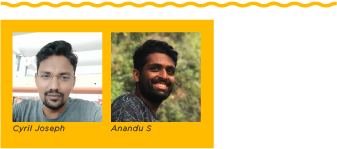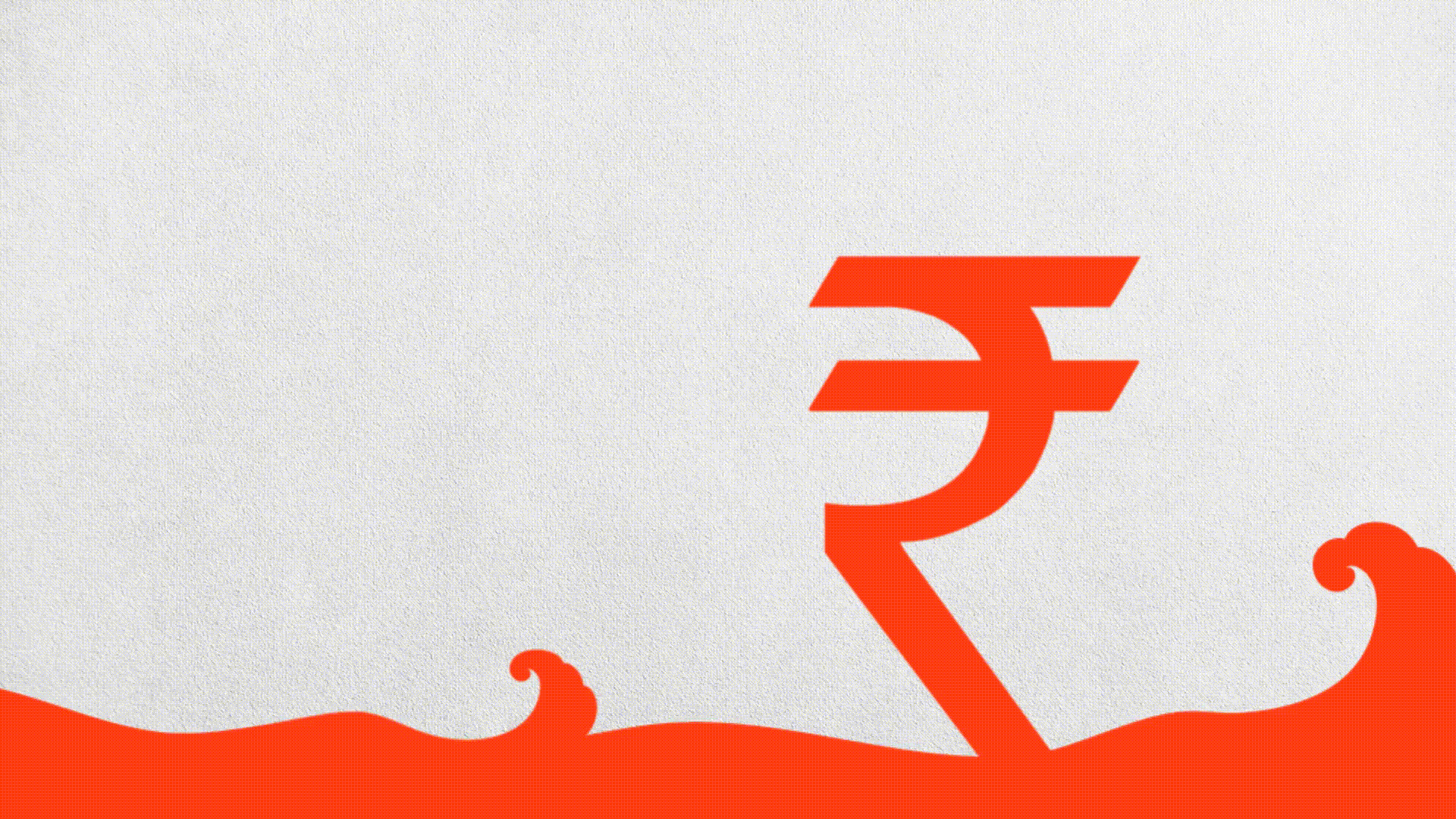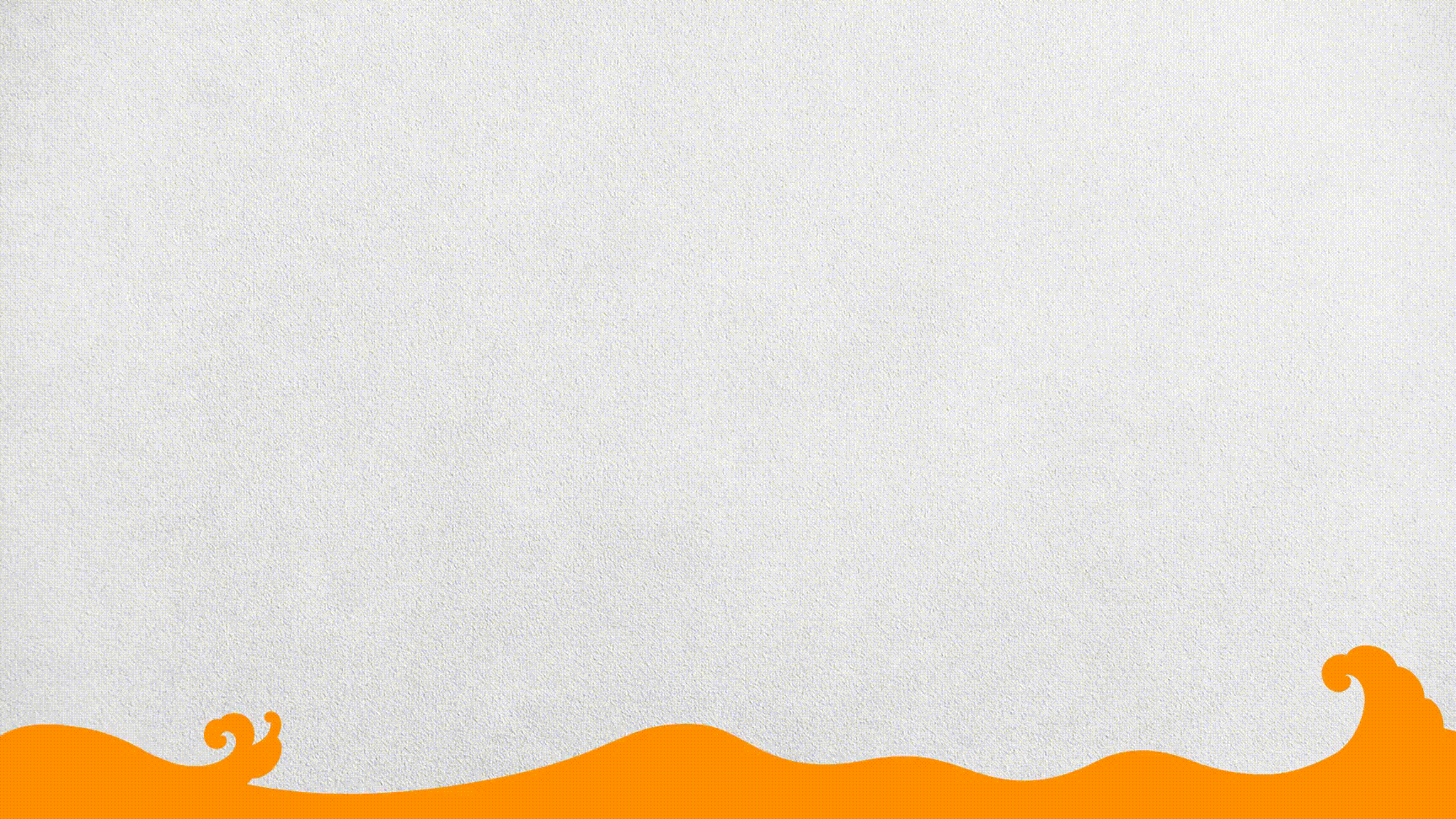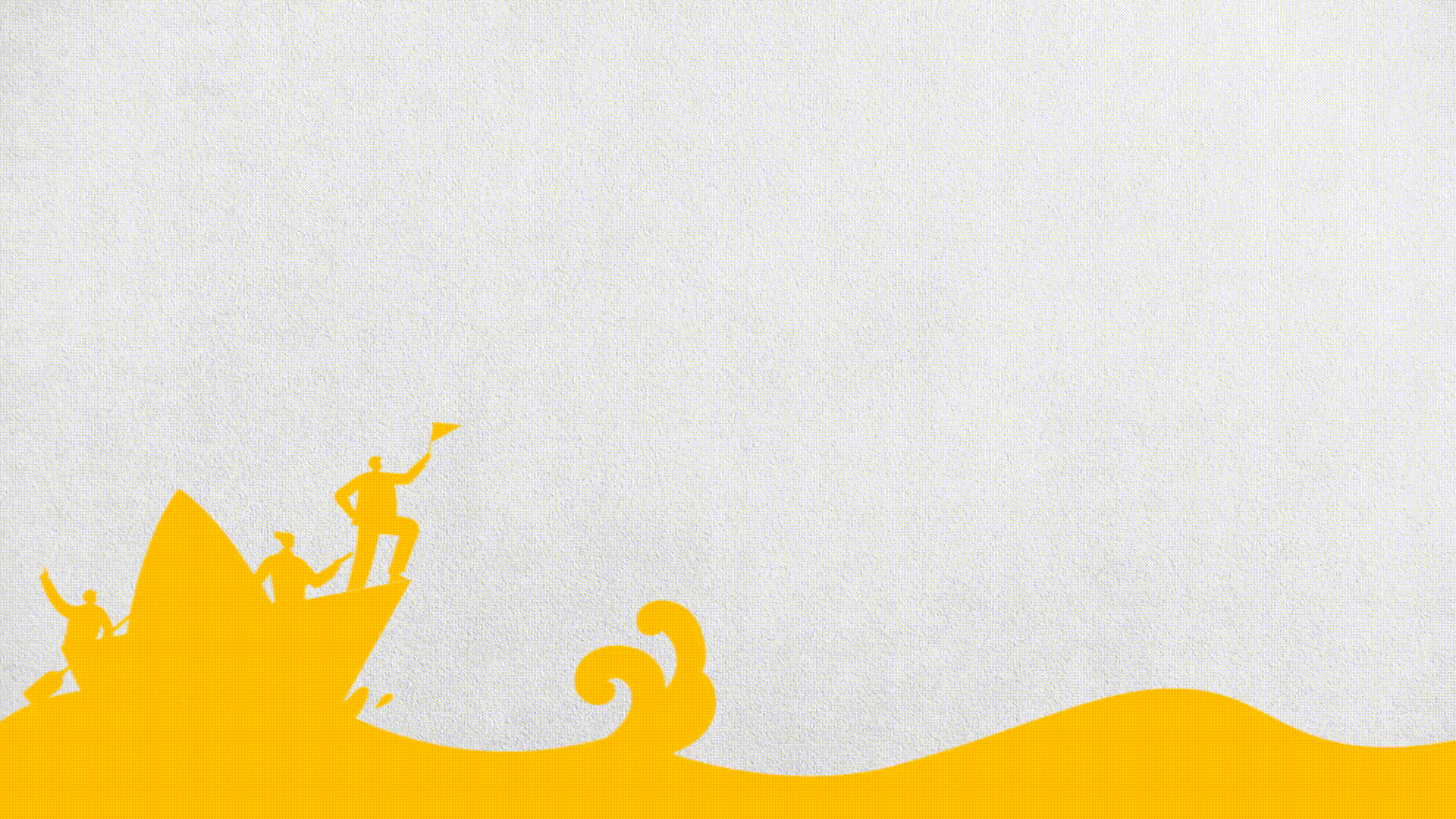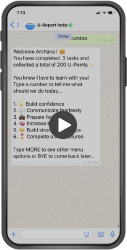.png)
surfing all the waves
annual report 2020-21
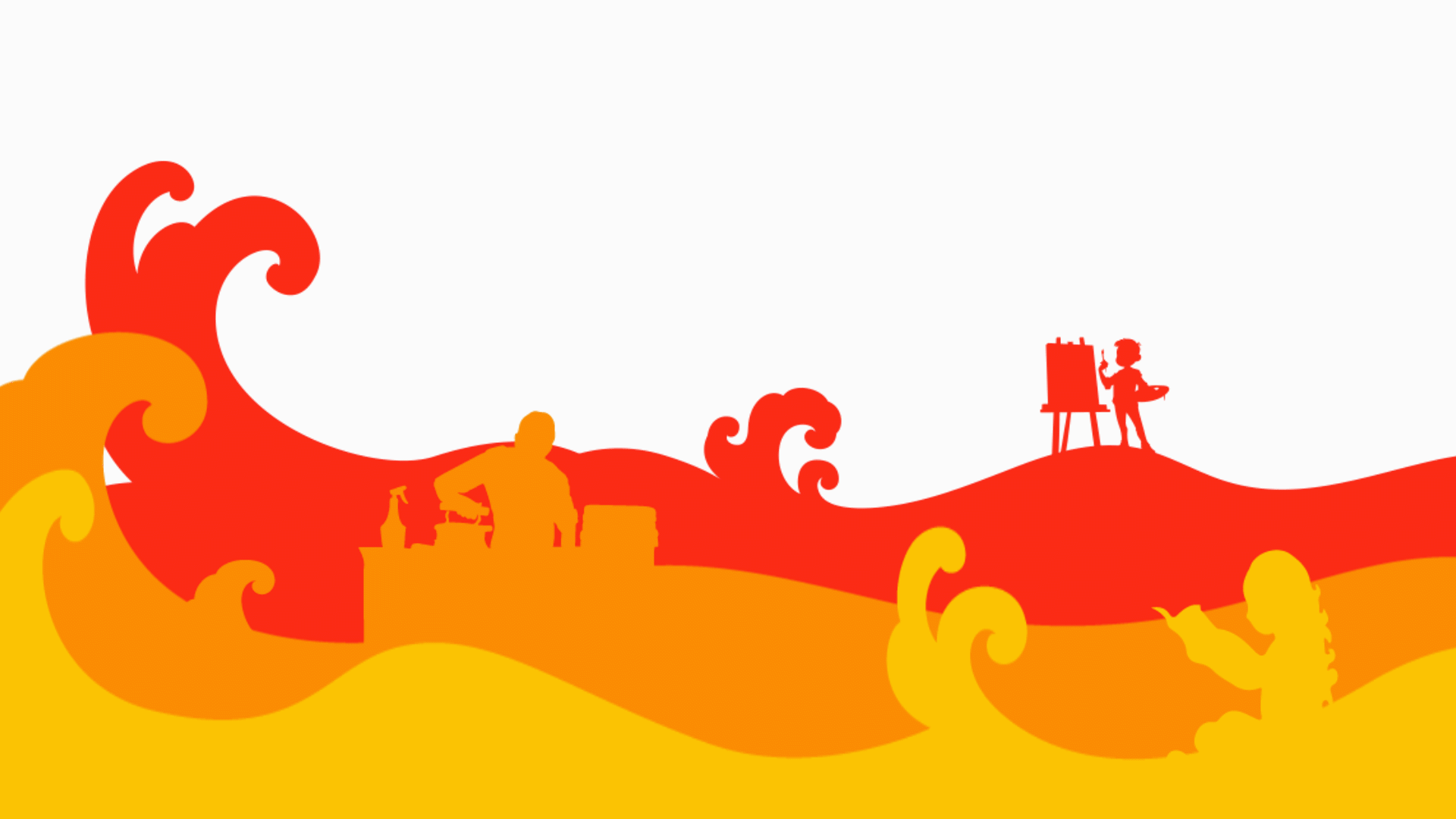
Back then, when we did the experiment at Christel House in 2017, the results were mind-blowing; confidence & communication for the learners had shot through the roof!
And as we commence with the state-wide launch of this program, we are eager to see the far-reaching impact that this might have on the destiny of the nation and its youth.
For both our sets of customers, students & vyapaaris (small business entrepreneurs), Covid brought tragedies that were hard to imagine. With schools and Industrial Training Institutes (ITIs) shut - we lost access to our customers, and we lived with waves of hope and despair as the virus ravaged the country. Shaking ourselves out of helplessness, we started out with relief measures and remedial actions to mobilize sustenance. We launched business restarter grants, along with digital learning and support for our vyapaaris.
The harsh realities of Covid also re-emphasized the urgent need for building entrepreneurial mindsets amongst our youth.
2. I have been a huge believer in the potential technology has in creating impact at scale, but early on as a learner of learning, I was worried if early use of technology might perpetuate effects I did not understand.
Now, having iterated & seen the impact of our work - I am very confident about the learning principles and approaches that Udhyam uses - and we are getting ready to build our technology muscle. Covid has accelerated our technology journey. Teams at Udhyam started experimenting with digital solutions, and 3 of those solutions have now seen some scale and are poised for creating Impact@Scale. These could change the course for Udhyam and for the youth of our country. I am nervous and excited about their potential.
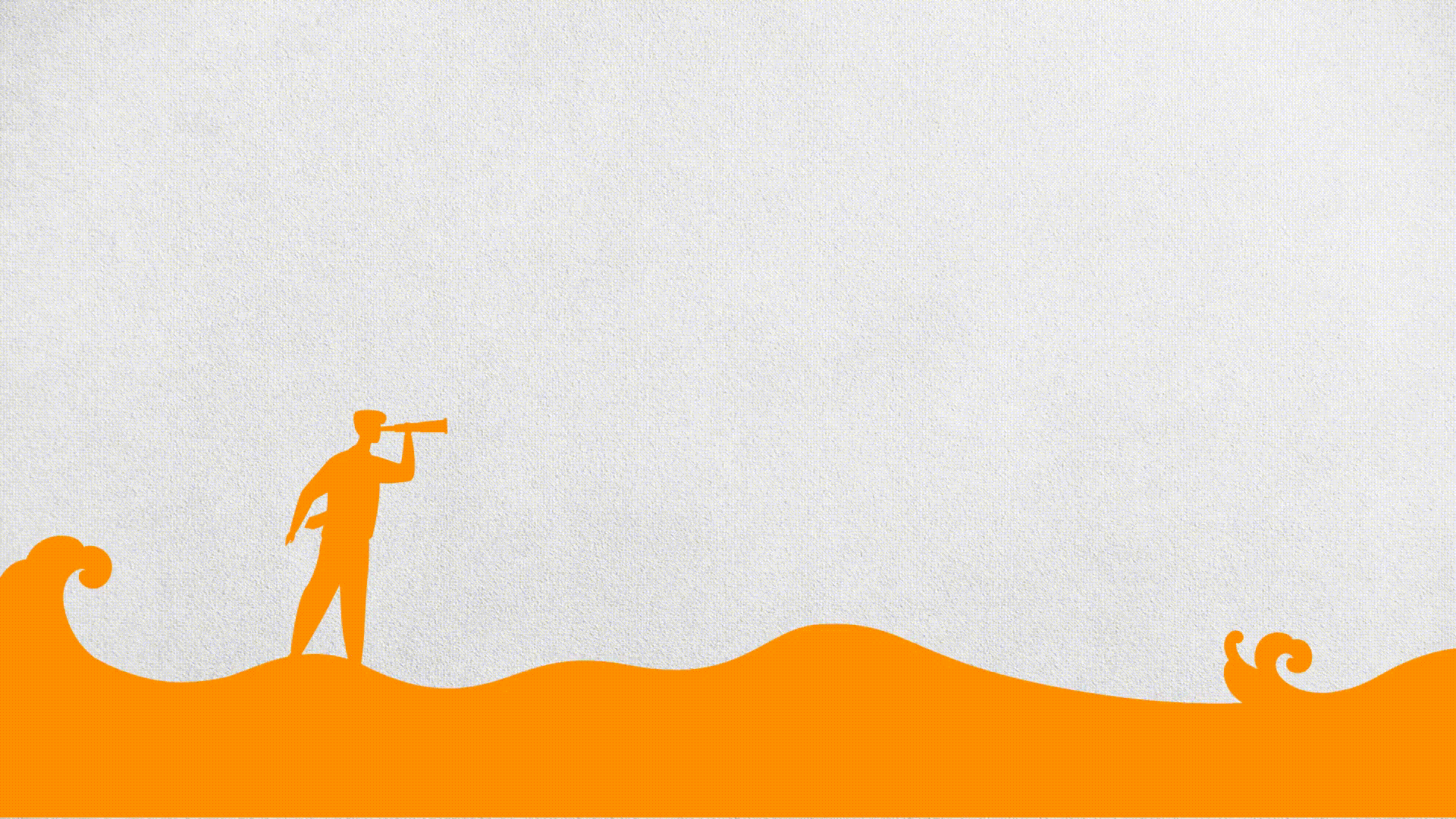
Through the Covid, stories of strength, entrepreneurial mindsets and actions by our students and vyapaaris, were the booster shots that made us believe more and go faster.
Monika, a Faridabad ITI student hoped for a government job in 2020. Little did she anticipate how the pandemic would stall her career, with job vacancies at an all-time low and delayed exams. However, every adversity presents an opportunity.
Monika, along with her friend and her brother, started “SuMoni Clothing”. The idea was to build a business by using her brother’s already existing skills and the right marketing strategies. Efforts were made to include services that could attract customers in a pandemic situation i.e. unable to step out of the home.
As we step into the next year with hope, I see this movement taking on further steam in the following ways: 1.Experiment, build and grow digital products to create more Impact@Scale. It’s a new muscle for us to build, and doing this as a non-profit is non-trivial. I hope many product and technology doers will enable our mission.
2.Understanding and measuring the impact of our work has always been tricky. There are no global standards to measure shifts in mindsets. We will work
3.Finally, as some of our products mature and create impact, we will build communities of partners: teachers and educationists, social entrepreneurs and volunteers, technologists and funders. We will learn from them and partner with them to create Impact@Scale. Around this time next year, you should start sensing the stirring of a groundswell, an outpouring of partners powering and broadening this movement - the movement towards achieving human potential! Join us as we fall, ride and shape this wave.
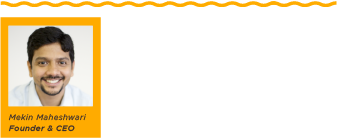

While the previous year had seen Udhyam make leaps and bounds both across Shiksha and Vyapaar, prospects seemed bleak in the wake of the first wave. Both streams evolved heavily around in-person and on-ground implementation. Given the pandemic, this entire mode of operation needed to be re-evaluated.
While it took the teams awhile to re-orient and adapt, they did manage to do so with aplomb. Necessity truly is the mother of invention, and the team at Udhyam demonstrated that multiple times over in the last year.
While the previous year had seen Udhyam make leaps and bounds both across Shiksha and Vyapaar, prospects seemed bleak in the wake of the first wave. Both streams evolved heavily around in-person and on-ground implementation. Given the pandemic, this entire mode of operation needed to be re-evaluated.
While it took the teams awhile to re-orient and adapt, they did manage to do so with aplomb. Necessity truly is the mother of invention, and the team at Udhyam demonstrated that multiple times over in the last year.
All in all, the team at Udhyam has weathered the storm well, and has shown remarkable resilience and grit in pursuit of the shared vision!
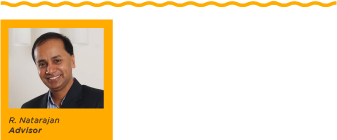
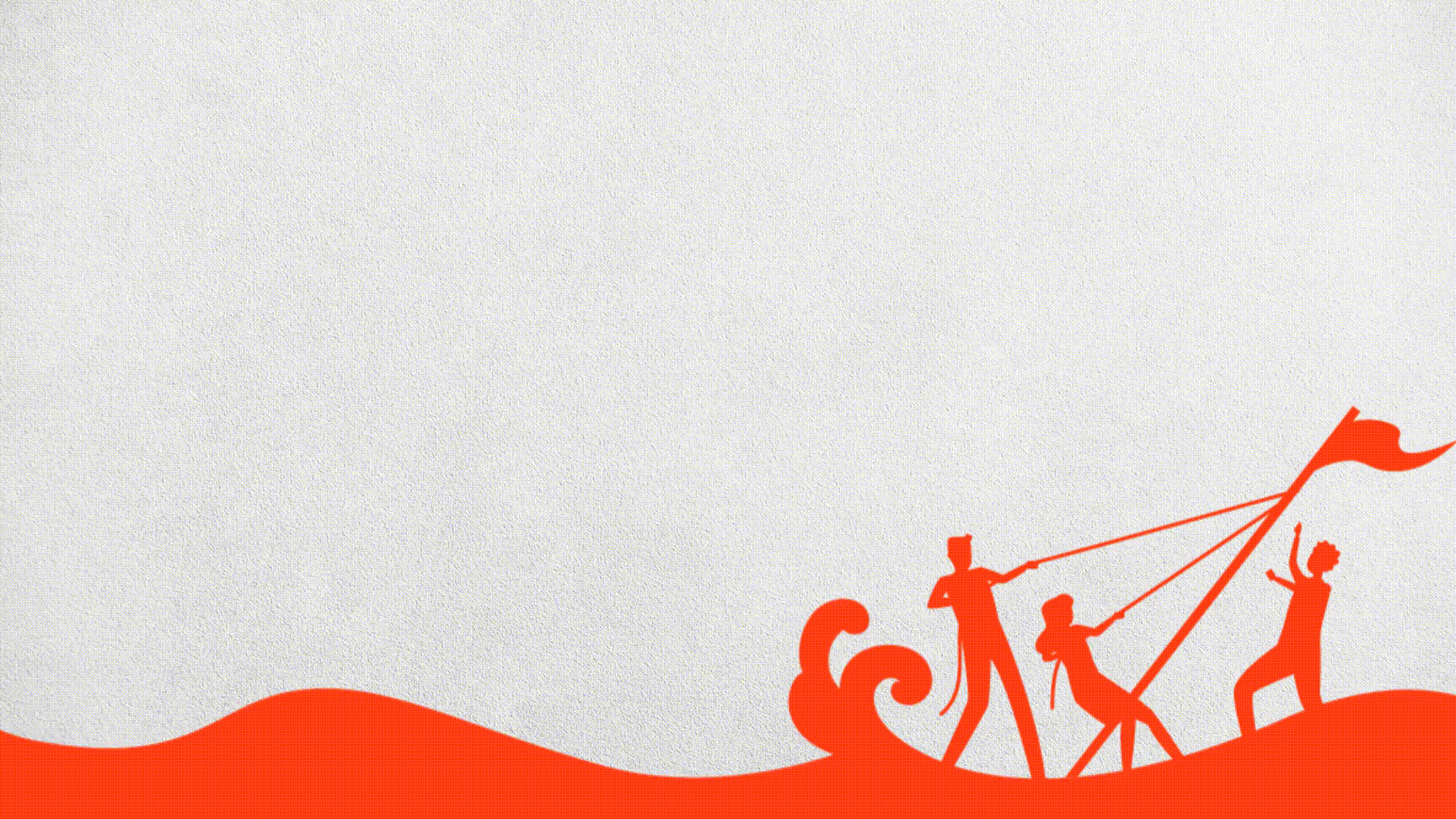
This past year has been like cruising waves, for us at Udhyam. It started out with anticipation of what the year might bring. Would covid-19 wash us out or would we stay afloat? Would a team that needed to work collaboratively, be able to achieve their goals remotely? Udhyam works to enable entrepreneurial mindsets - which was becoming harder to do as we saw our customers struggle to make ends meet. Being entrepreneurial came second only to surviving the covid-19 wave.
Remote work became the mainstay as covid-19 continued to disrupt our customer groups. As we look back, Udhyam grew in many ways even if we weren’t always confident. There were lulls in the year, when we focused on learning; problem solving, leadership lessons, upskilling our teams to service customers through online platforms and products. Udhyam’s
Leading by example, Mekin dove into the team’s learning journey by leading programs like the Problem Solving Workshop and Adaptive Leadership Learning sessions. He set up a regular catch-up every Wednesday with a bunch of Udhyamis eager for a conversation. When Vyapaar hit roadblocks Mekin went right in and helped problem solve with the team.
There were also some lows - work not moving at the pace we wanted it to coupled with losses from covid-19, fatigued us as an organization. Udhyamis supported each other in the form of the Blue Dot listeners, volunteers who would listen to anyone needing a listening ear. Udhyamis met virtually on Blue Dot Fridays to get to know each other, play, and build a community. When an offsite looked unlikely, we had an online offsite instead. When mental wellbeing took a hit, we extended weekends with an additional health day once every quarter. We sought support from our counseling partner, Parivarthan, for
We pride ourselves on our recruitment process, which helps us get to know a candidate before making a hiring decision. Remote work made it seem difficult. Our 3 day “Know Each other Process” (KEO) where we invite candidates to experience the Udhyam office and the team wasn't possible. So we changed how we hired - more contract roles, respecting the fluidity of projects impacted by covid-19 and only certain permanent roles. We adapted the KEO and onboarding process and took it online. Looking back, we’ve had 10+ new employees and the recent Performance Assessment process validates that it has worked! We celebrated promotions and grew a rung of two managers to lead our Shiksha teams. We also had a leadership change - while we bid farewell to Vyapaar’s founder we brought in new leadership to achieve Vyapaar’s focus.
Like the lone surfer who walked back, board in hand, Udhyam is gearing up for the future with vitality and eagerness.


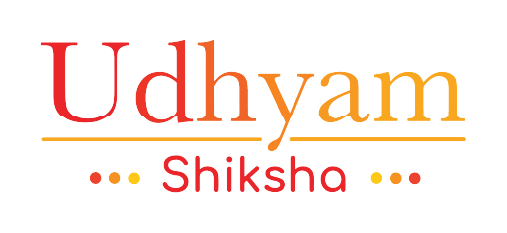
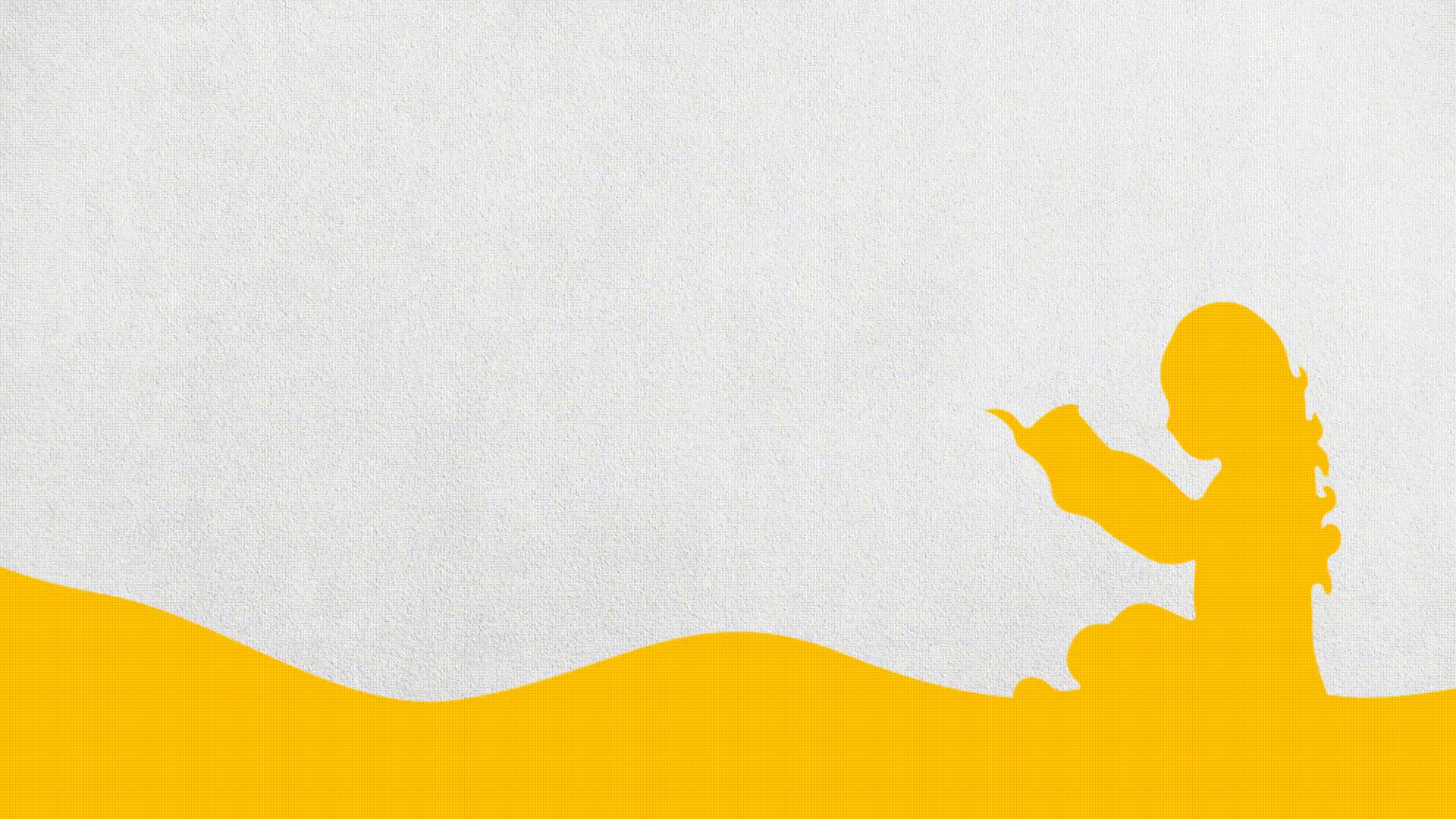
While on one hand, we kicked off our mindset programs in Maharashtra, Kerala, and Punjab with youth in the Industrial Training Institutes (ITIs), the team has been prepping hard for upcoming launches in Uttarakhand, Andhra Pradesh, and Nagaland with school learners.
The year also saw us implement our first-ever Incubation program for ITI students - with over 15 entrepreneurs (ITI alum) in Haryana starting and sustaining their businesses during the difficult Covid period.
On the product development front - FunDoo and the Online Entrepreneurship Product (OEP) saw significant interest with stakeholders, with UNICEF backing the former, and organizations like Kerala Institute for Entrepreneurship Development (KIED) adopting the latter. At the time of writing this, organizations like CBSE and Vedantu have also shown a keen interest in OEP.
Overall it has been a tough year for people on the team - especially battling covid impact for themselves and/or their near & dear, and dealing with the added complication of uncertainty/switching between online
Looking into the future, the Covid-uncertainty of classrooms not being fully functional with students, continues to pose a serious challenge to the scale and effectiveness of our various state interventions in the coming year. At the same time, it will also be exciting to see how our new digital products fare in converting this challenge into an opportunity towards effectively minimizing the layers between the content and actual learning happening.
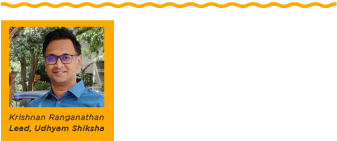
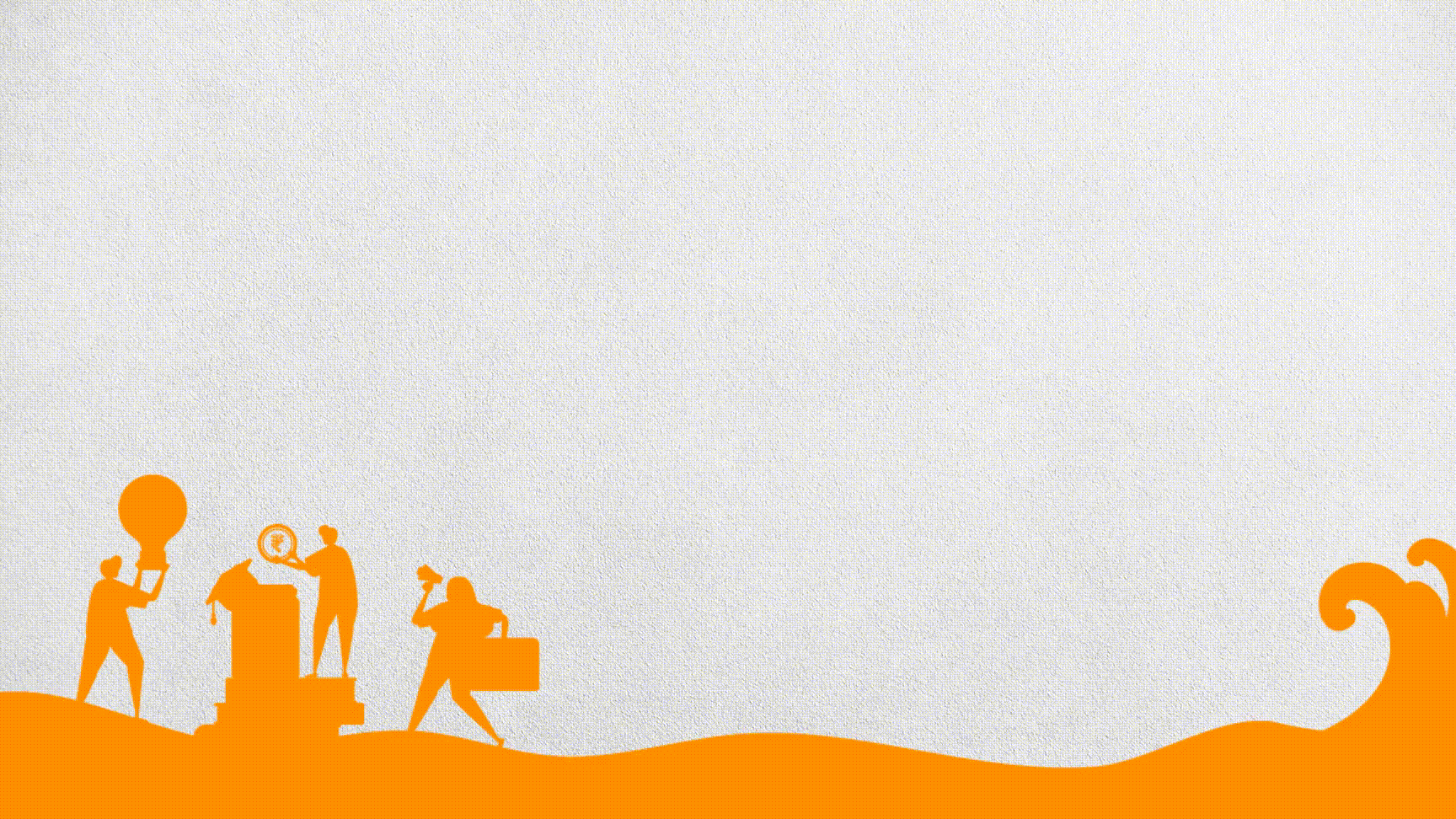
- As part of Global Alliance for Mass Entrepreneurship (G.A.M.E.), we started the “Nayaka Unnatvam'' program with the Government of Andhra Pradesh. The program aims to work with 50 schools initially and eventually cover 13 lac learners from 6000 schools across the state.
- In Haryana, in collaboration with the government’s ITI department, the ‘Udhyami Haryana’ program aims to create 1000+ entrepreneurs from the government ITI ecosystem, also transforming ITIs into incubation labs in the next 3 years.
- In Uttarakhand, the “SIDHE program” with SCERT Uttarakhand not only aims to enable high school students to become entrepreneurial, but also to solve the challenge of migration faced by the state.
- In Punjab,, in government ITIs, the program aims to enable students with employability and entrepreneurship skills which would in turn enable them to make better career choices after their graduation.
- In Nagaland, Udhyam Shiksha has collaborated with Youthnet to support them on curriculum design, training and monitoring and evaluation for their entrepreneurship development program with the Department of Industries and Commerce.

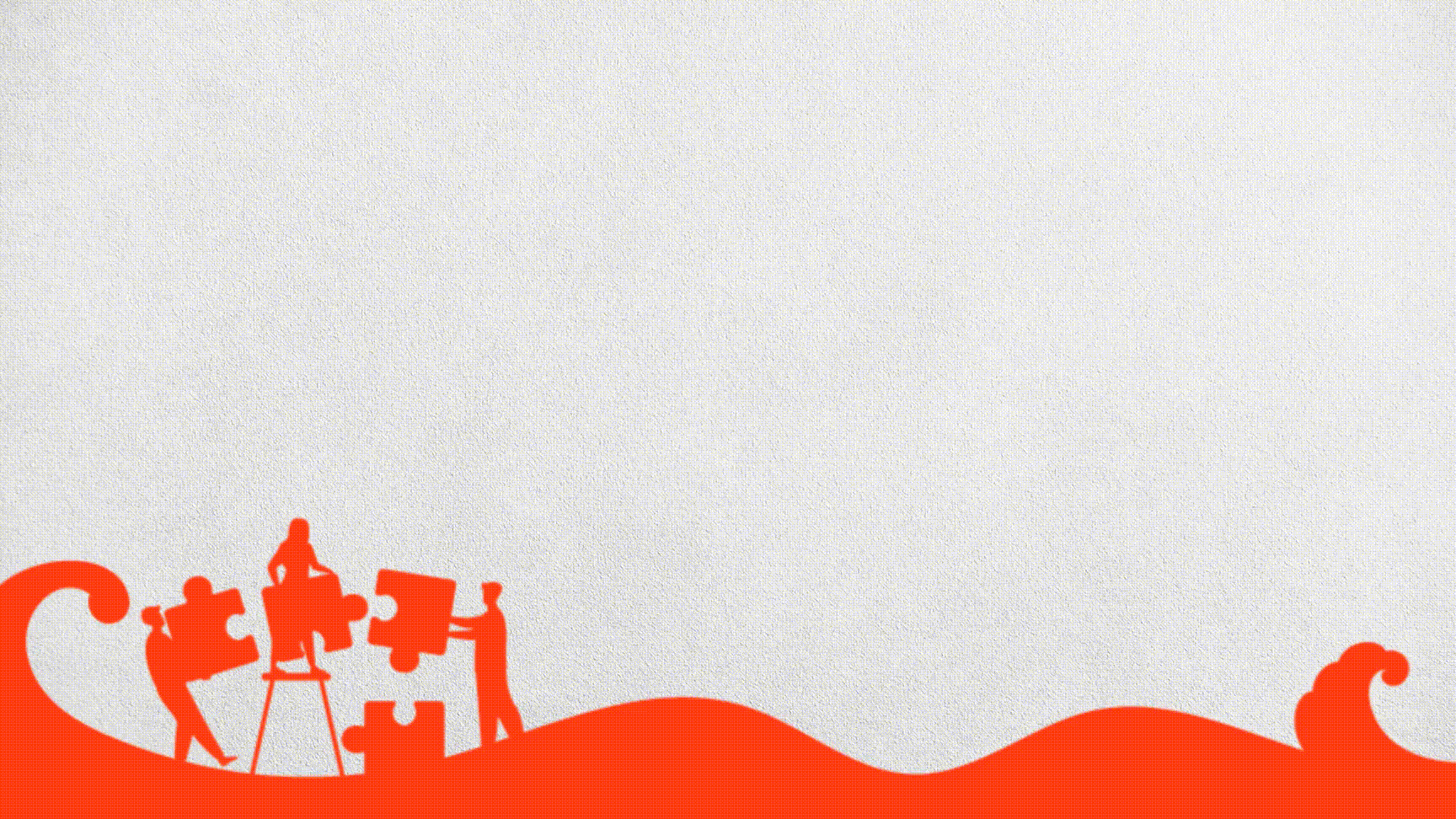
Given the severe disruption in the learning system due to the pandemic, it was critical to identify innovative solutions to fulfill commitments towards the government and the customers. Thus, bringing a new slant to building entrepreneurship and training methodologies was the need of the hour. Essential for both pandemic and post pandemic world survival, we helped the student and teacher communities develop greater resilience to future shock through multiple tailored initiatives.
Teachers & ITI instructors are enablers of our programs. Through the Training of Trainers (ToT) model, we ensured they were equipped, to deliver our programs by providing them with necessary technical and moral support. Our program activities gave students a chance to showcase their skills and capabilities in an interactive and advanced online environment along with their regular academics. The platform enabled experiential learning and team collaboration through real world activities.


The 30 hour curriculum is approaching its final sessions in the 64 ITIs covering around 18000+ students. The Employability Skills Instructors are the enablers of the program trying to bring out the potential of each student and making them more entrepreneurial.
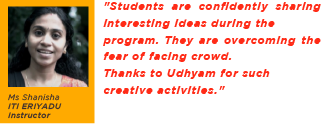

The Online Entrepreneurship Program was implemented in the Entrepreneurship Development (ED) clubs of schools. With the support of Kerala Institute of Entrepreneurship Development (KIED), we were able to pilot the 15-day program, which also included the training for ED club coordinators to deliver the program for 11th grade students. KIED and Udhyam have discussed the scalability of this initiative to more schools in the coming years.
"Every house needs phenyl to clean toilets, surfaces, etc. in our area. So we invested 140 rupees to start this business and made 700 rupees profit at the end of this business project. Apart from learning how to start a business and run a business as a team, our confidence level also increased as we learned to speak with other people. We feel we got connected with society.”
- Mithun Krishna & Muhammed Najadh on their OEP experience.
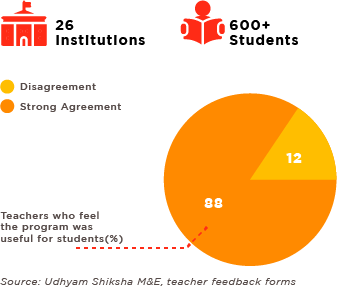


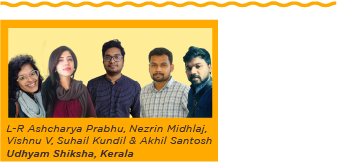

- Students’ data demonstrated a positive mindset shift and they also found the program beneficial.
- 20+ students across colleges have started or are scaling their business after the program and are being supported and mentored by Udhyam and local entrepreneurs in their journey
We learnt and built confidence to replicate the Entrepreneurial Mindset Program in colleges across geographies.
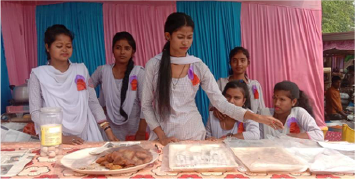
In Assam, a group of 17 learners set up a 'pitha' stall in the Kamrup Annual Mela in February, 2021. They raised ₹5K locally with the help of their professor. They divided work amongst themselves and started preparing for the stall. Their stall made sales of ₹14K and generated a profit of ₹9K. The learners' grit, independence, and collaborative mindsets were greatly appreciated by the community and college administration.
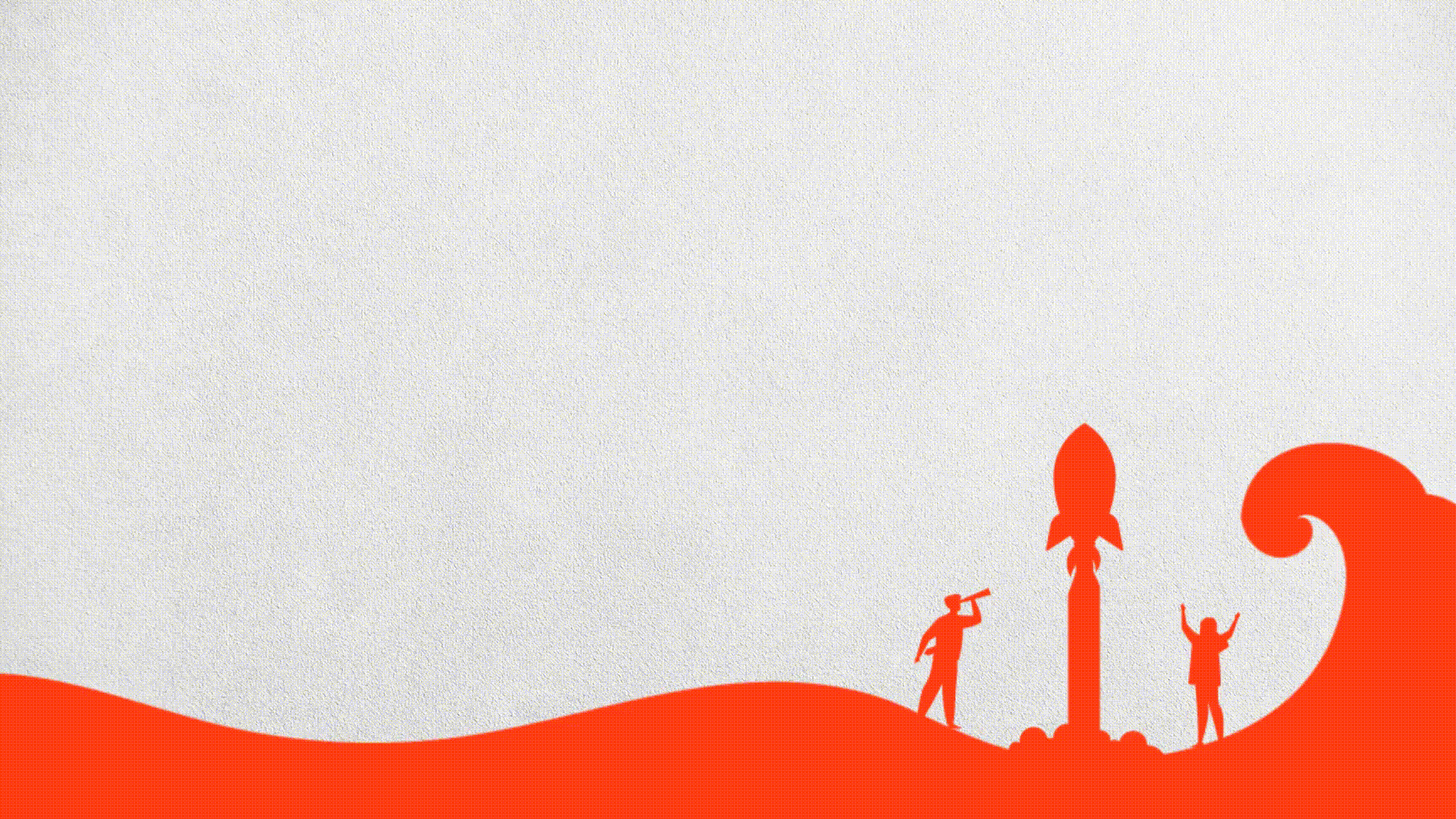
Udhyam Shiksha got off to a stupendous start with the program being inaugurated by the Hon. Minister Skill Development, Employment and Entrepreneurship, Government of Maharashtra, Shri. Nawab Malik. 32 ITIs across the state were shortlisted for the first phase of this program which will end by August, 2021. Over 90,000 learners across 417 ITIs in Maharashtra will benefit from this program annually in the long run.
Udhyam Shiksha program moved online in April with the closure of ITIs. With some of these ITIs being in rural belts, classes saw a large dip in attendance owing to the lack of internet for both instructors and learners. To overcome this, the team designed and executed a Whatsapp based learning program with the aim of student learning while having fun in the form of competition - Champions Challenge.
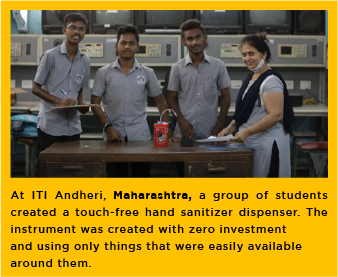
- For most learners, the championship served as a platform to identify their true potential and perform beyond their own expectations.
- 3 generations participated in this competition as one of the learners participated with the help of her mother and her daughter.
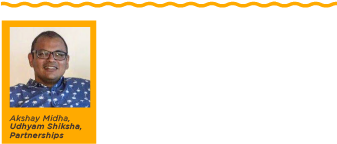

The program was designed as an offline program but ITIs halted physical classes during covid-19 lockdown which enabled us to launch the program online. The program started with orientation to familiarize learners with the program structure - including online entrepreneurship classes, introducing Entrepreneur Facilitators and the program team. This is the program model which was designed collaboratively with the learners and other established entrepreneurs.

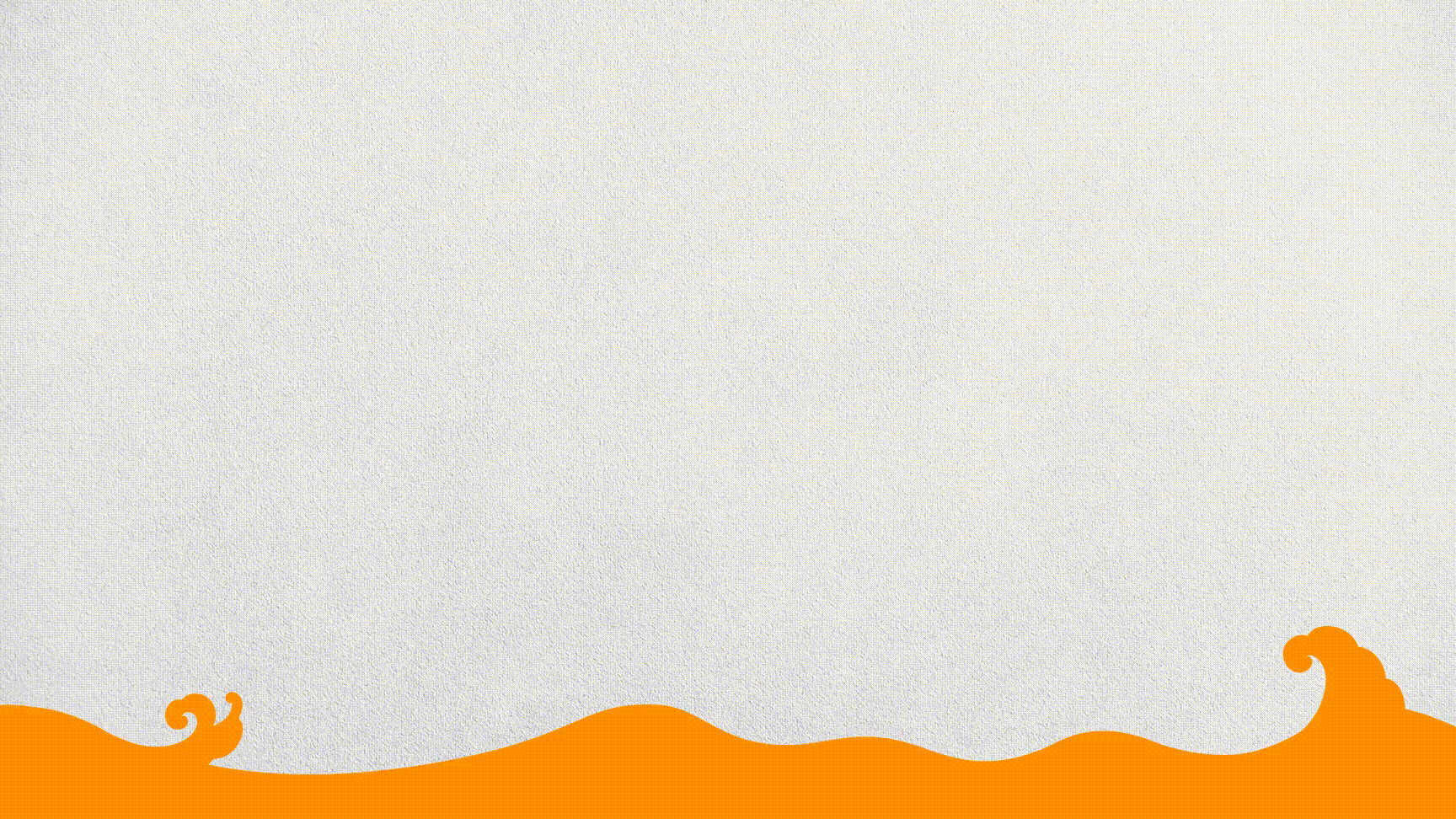
As an outcome of the pilot, most students started their businesses during the pandemic. 21 sustainable businesses were identified, of which 20 were women-entrepreneur-led. The average revenue/month/business was ₹4000+.
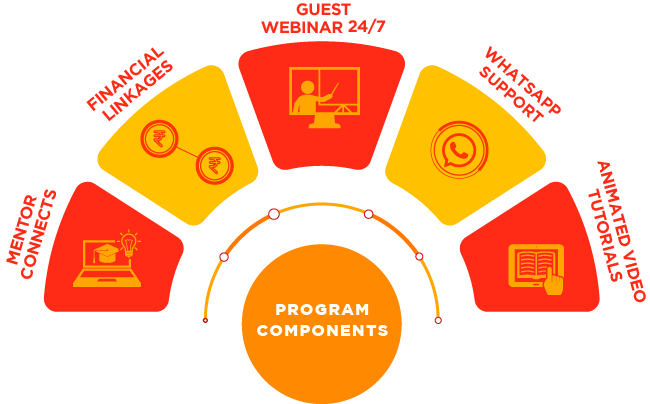
Scaling up
Now, students from 25 ITIs (in the 1st year) will participate with an aim towards better futures, while developing an entrepreneurial mindset. In the pre-incubation, 3175 have already have been selected into the Udhyami Haryana program. The aim is to build incubation infrastructure within ITIs to lead the way for the ITI ecosystem to generate more entrepreneurs in the country.
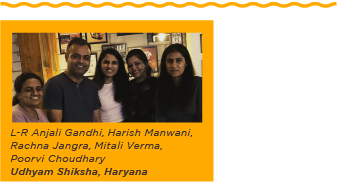

The Haryana Project, wherein ULF, alongwith Medha Learning Foundation is providing substantial support to ESIs to practise ‘experiential learning’ approach while teaching Employability Skills subject, to help students get exposure to 21st C skills. It also played a key role in institutionalizing this change by focussing on leadership skills of our Instructors. ULF has also started supporting the Department to focus towards its vision of changing the ITIs to Industrial Training and Entrepreneurship Institutes under the Udhyami Haryana Program and establishing Incubation labs at ITI level.


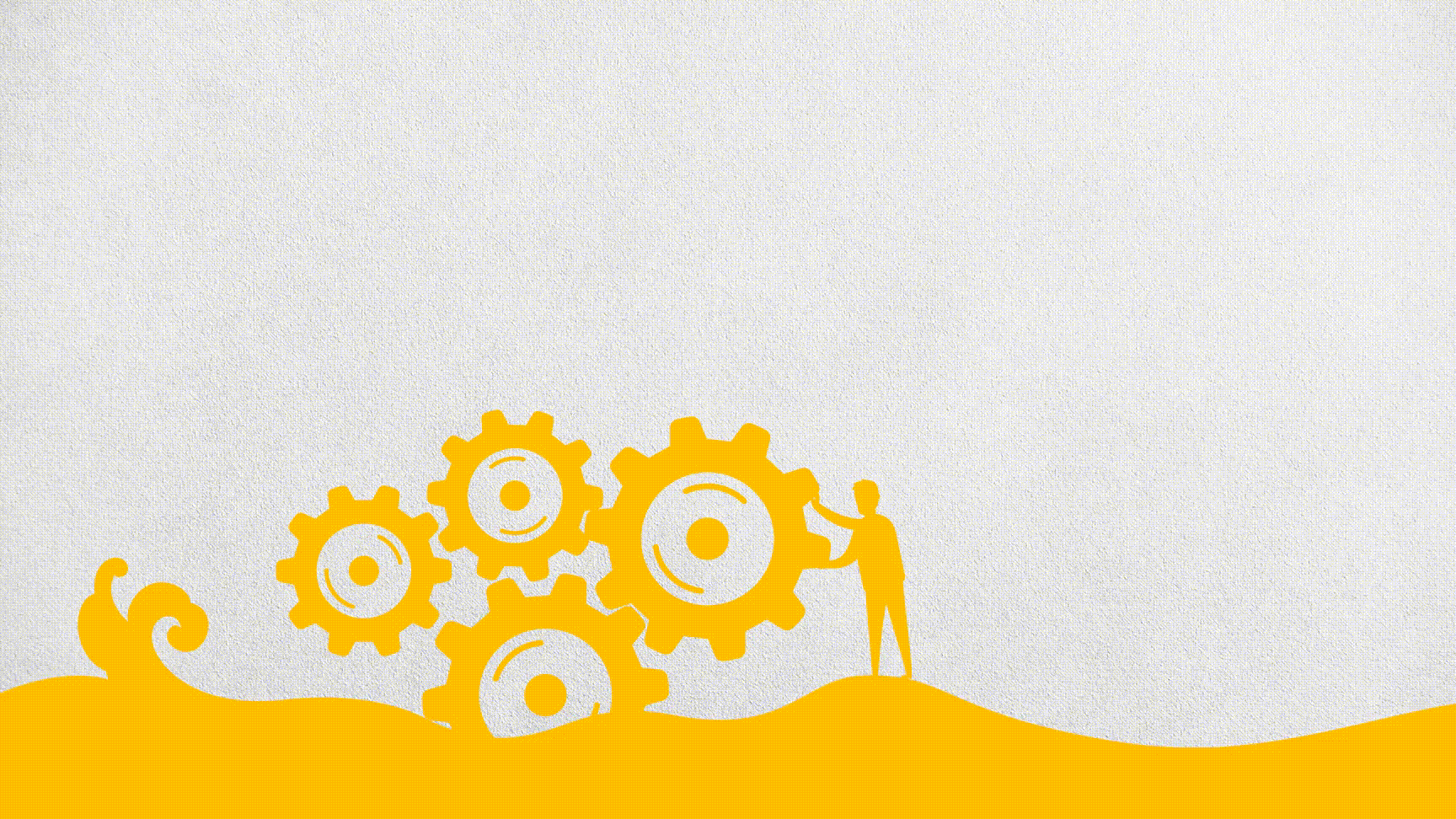
The 1st year of the program ran smoothly offline (in 2019) in terms of training and implementation in ITIs but once the covid-19 wave rose, hiring and training new ESIs and program implementation was stalled, but the team didn’t stop adapting to changing circumstances.
Soon, the Department announced the launch of Digital learning and Udhyam and Medha started creating digital content and later equipping ESIs to do the same. The digital learning program impacted 172 government and 254 private ITIs across Haryana.
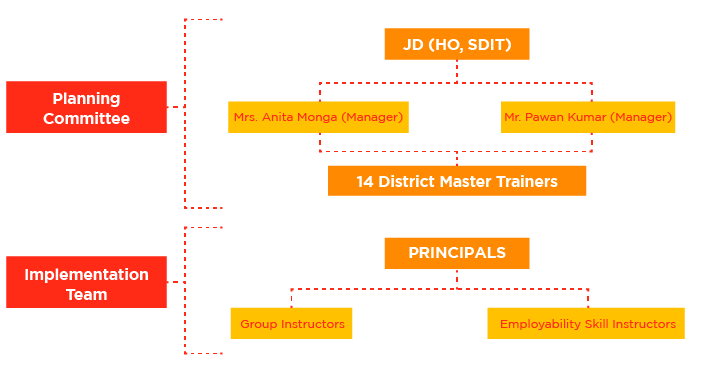

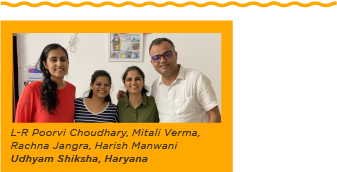





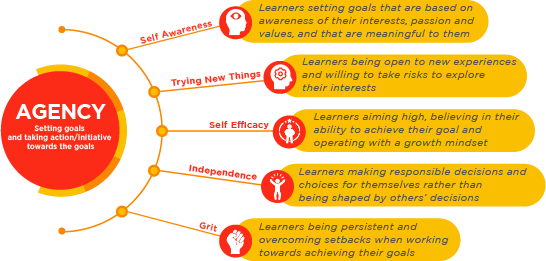
For example, taking independent decisions which are also responsible, requires learners to critically think about the consequences of their actions, weigh pros and cons, and decide on their course of action.
In terms of next steps, we are beginning to incorporate student actions from our frameworks into our curriculum design. The work on creating these frameworks and the linkages to agency has also set course for us to design and incorporate assessments for learner agency and goal orientation, in our evaluation framework.

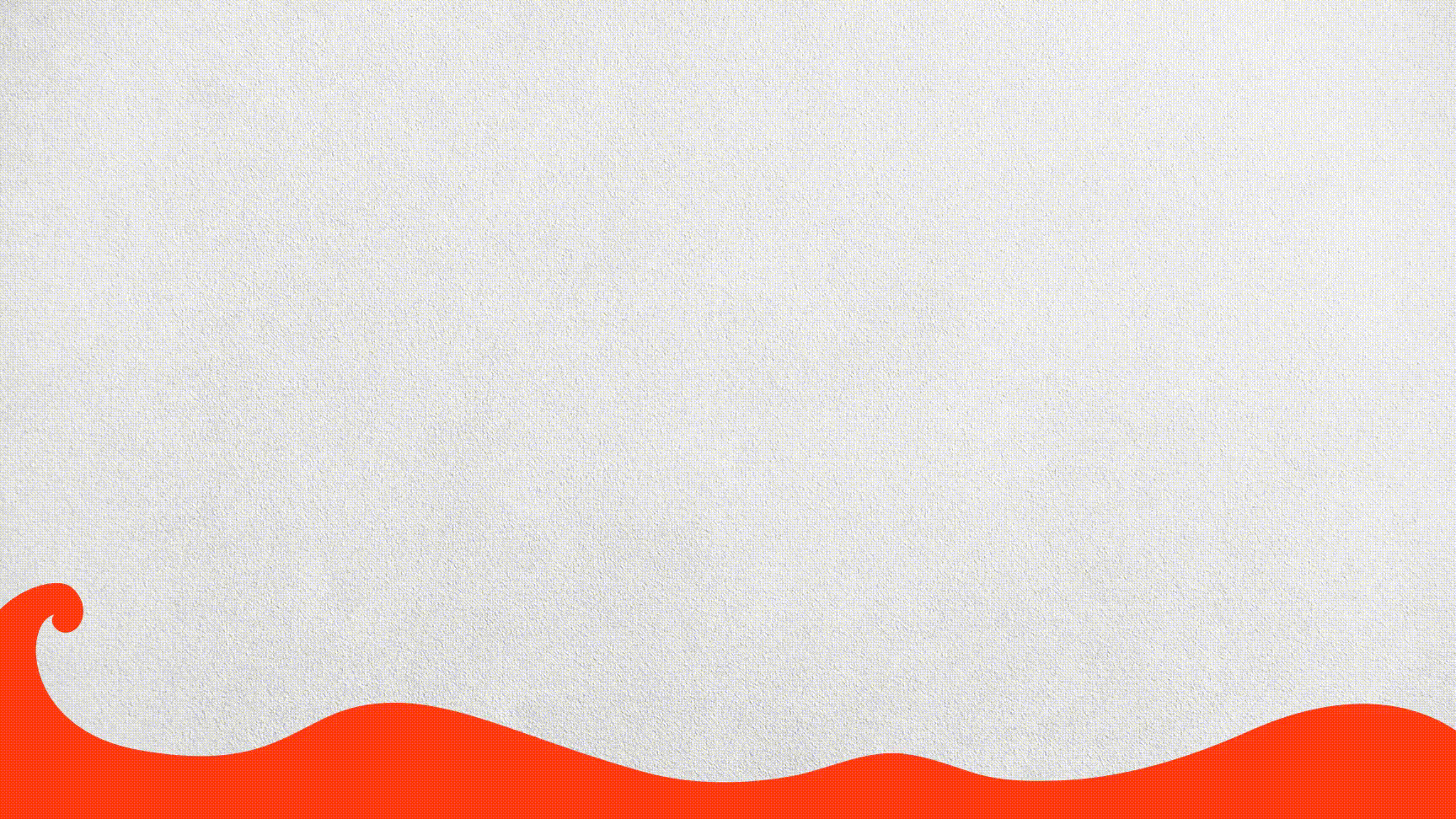
Last year, with the classroom itself, closed off and confined to behind screens, we saw an opportunity in to utilise the infamous mobile phone to bring pertinent life skills to children and young adults. funDoo is Udhyam Shiksha’s answer to self-learning, at the learner’s pace, while having fun. funDoo was created by Udhyam in collaboration with YuWaah. Around the same time, in the true Udhyam spirit of not halting mindset building, the Online Entrepreneurship Program (OEP) was piloted, now a beacon in the new normal.

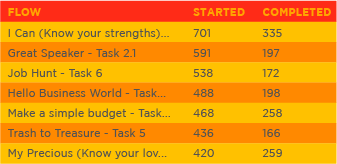 As of April 2020, funDoo has reached 33k users from almost every state in India. We plan to
expand our team and reach 10 million users by the end of 2021, and with the grant of
$1,50,000 from the Office of
Innovations at UNICEF, we are well set on the path of achieving this goal.
As of April 2020, funDoo has reached 33k users from almost every state in India. We plan to
expand our team and reach 10 million users by the end of 2021, and with the grant of
$1,50,000 from the Office of
Innovations at UNICEF, we are well set on the path of achieving this goal.
funDoo’s potential for accessibility can be tapped to bridge several gaps in education today and can reach the last mile user.
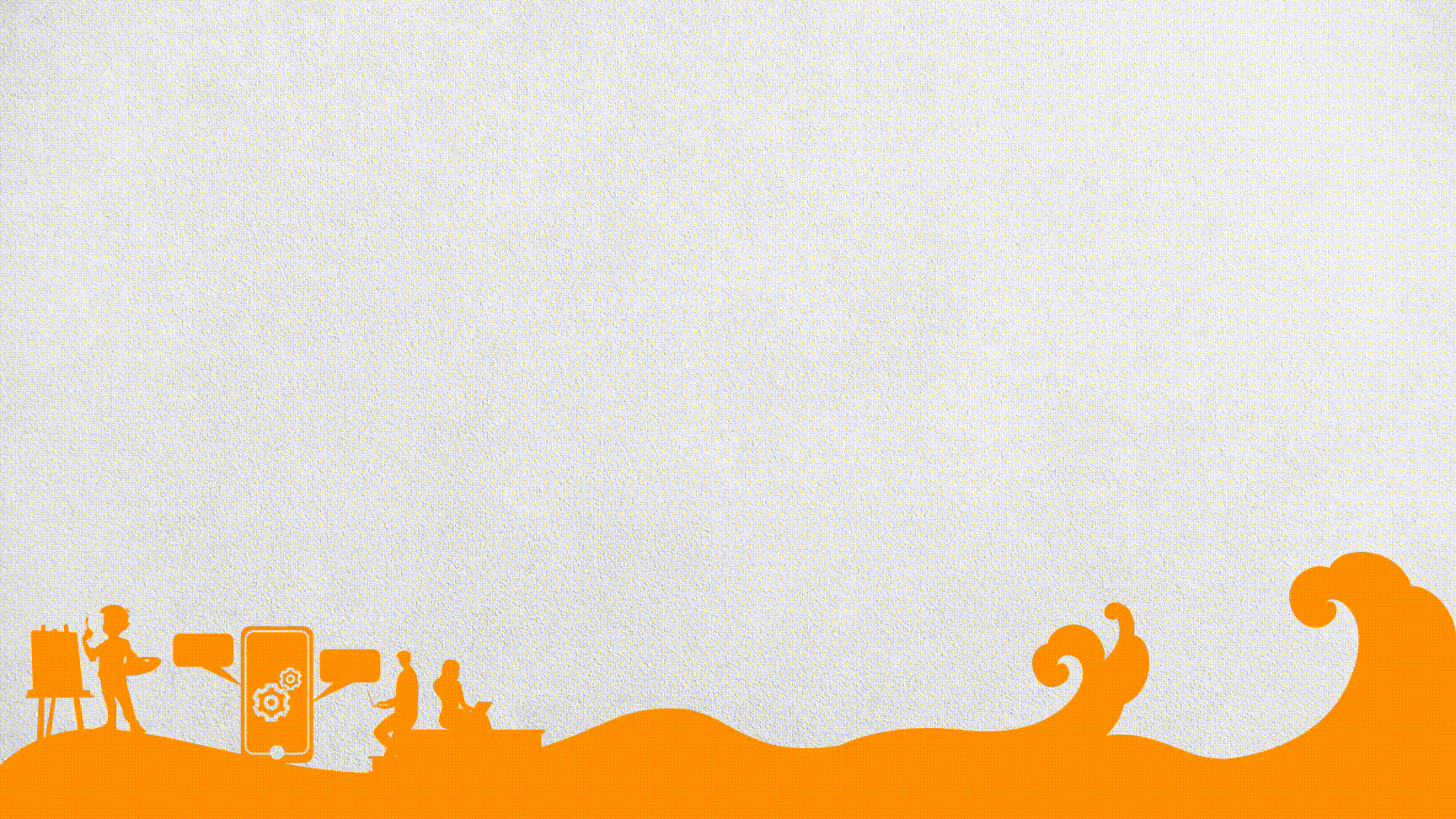
The program structure for the OEP pilot was developed by working closely with learner alumni and reflecting on data from prior cohorts:
- 12 Online sessions for the participants
- Applying these concepts in the real world
- Teacher training and support
In a short span of time, OEP has become a lean and efficient surfboard to ride the waves of change and our team of surfers is getting stronger, every single day. A centerpiece of Udhyam Shiksha’s effort, OEP is geared up for exciting partnerships with CBSE, Vedantu, state governments, and beyond, steadily closing in on our focus of providing quality at scale.
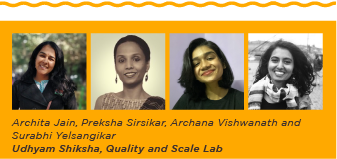

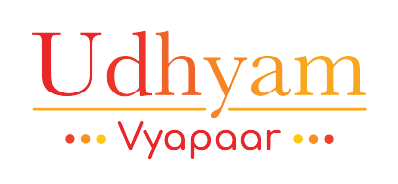
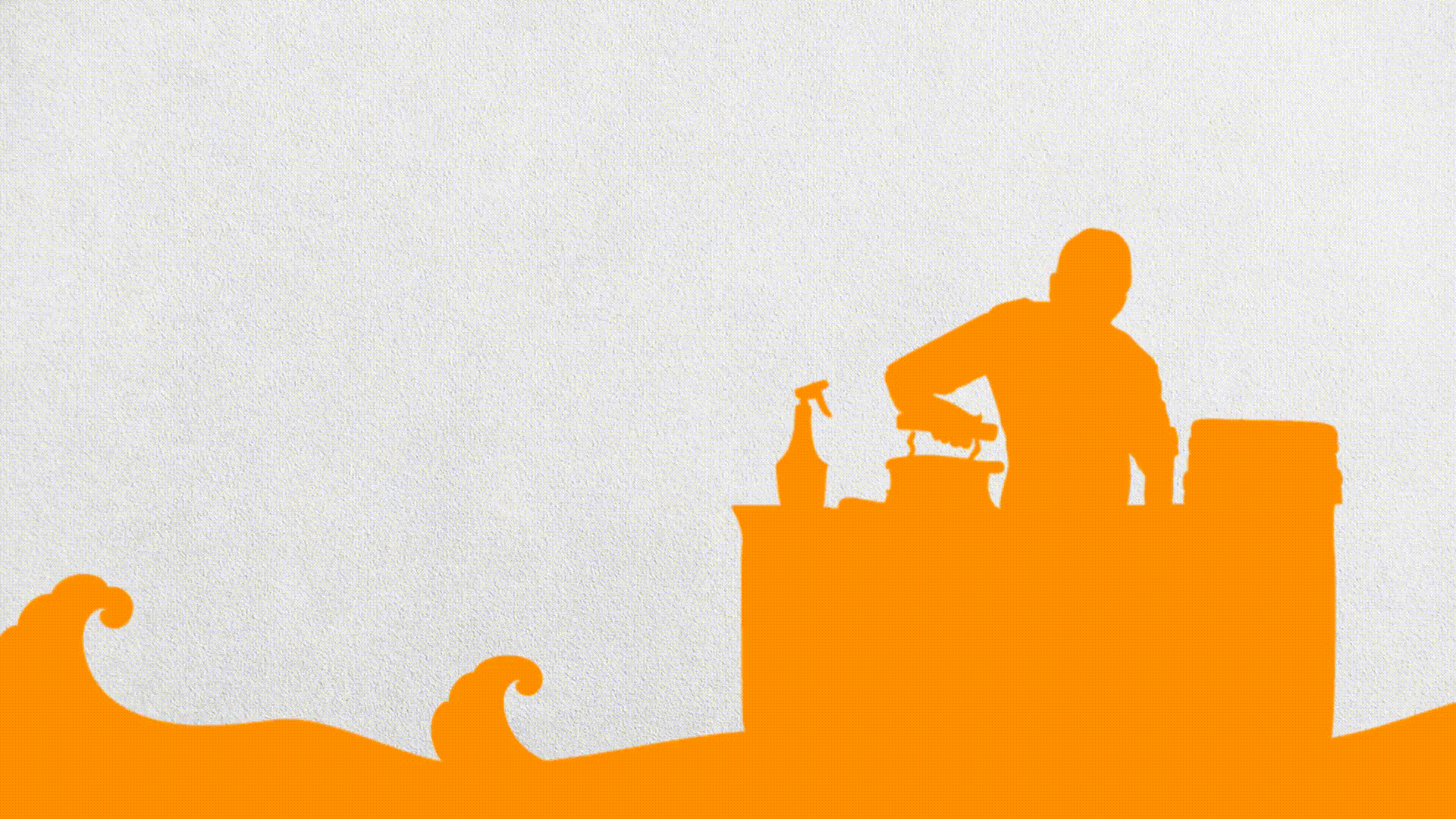
Udhyam Vyapaar started out 3 years ago, to help nano-entrepreneurs scale & succeed. To that end we had tried various engagements and learnt what worked and what didn’t. We were poised on the brink of scale for a few of our interventions, but unfortunately, that was when we were buffeted by the gale force wind that was the coronavirus.
In the blink of an eye entire livelihoods were destroyed, and our audience, the vyapaaris, were almost uniformly struggling to fulfill their basic needs. We had to take our eyes off the long term and get into solving for their immediate needs. From ration drives, to raising funds so as to do Direct Benefit Transfers, we focused on what needed to be done in the moment.
A highlight here for us was the fact that this business restarter project, was the first externally funded project at Udhyam.
Internally too we had lot to deal with and a lot of unlearning & relearning to do, as wave after wave buffeted us all!
Our product intervention, the LPG based iron box, was proven to improve productivity, increase income & improve vyapaari health. However, since the ironing business was all but wiped out for a large part of the year, we were forced to shelve our plans to orchestrate this market transformation.
While our mindset training pieces were delivering great impact, all our sessions had hitherto been face to face. How then were we to navigate this ‘new normal’? Vyapaaris would not be able to manage video calls and zoom, would they?
Of course, not all of it has been smooth sailing! We’ve struggled with creating self learning modules that work for our audience base. Building out a model that enables access to credit at scale, is still a distance away on the horizon. We’ve lost precious time on the conversion to LPG based ironing.
But then again, we’ve also learnt much and created much value, while figuring what it takes to weather a storm of the calibre of the one we’ve all been through over the last one year!

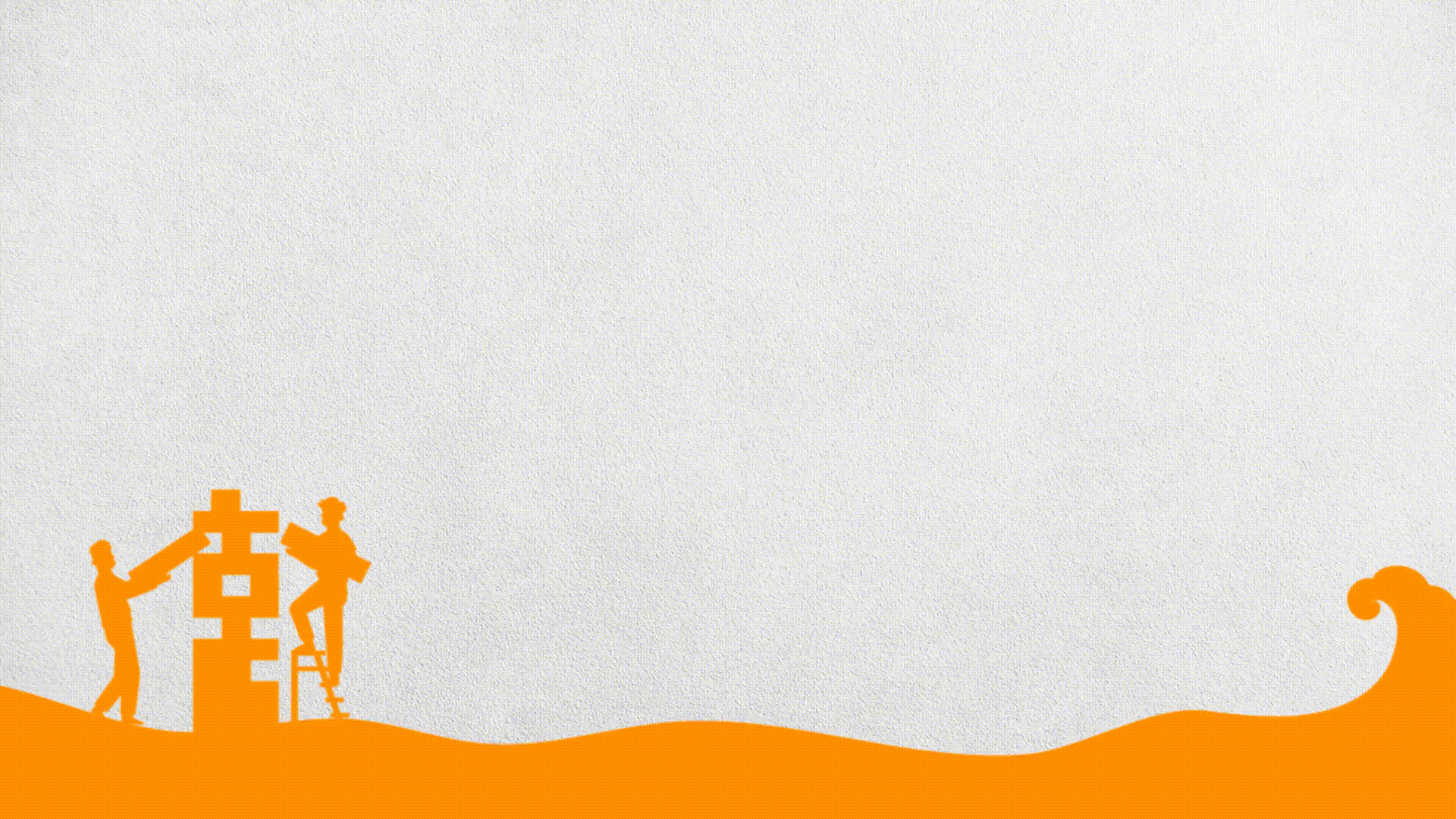
immediate impact on livelihoods
Work at Udhyam Vyapaar moved online and while we grappled with these changed circumstances pressing needs from the vyapaaris became apparent. All of the 500 or so vyapaaris who we were working closely with at the time lost their only sources of income. Along with this, they lost the ability to stock food rations at home, pay rent and bills, or put aside the money they would inevitably need to restart business once the lockdown lifted.
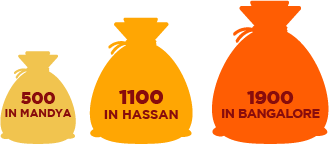
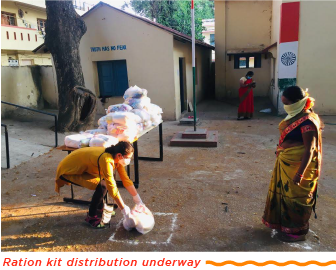
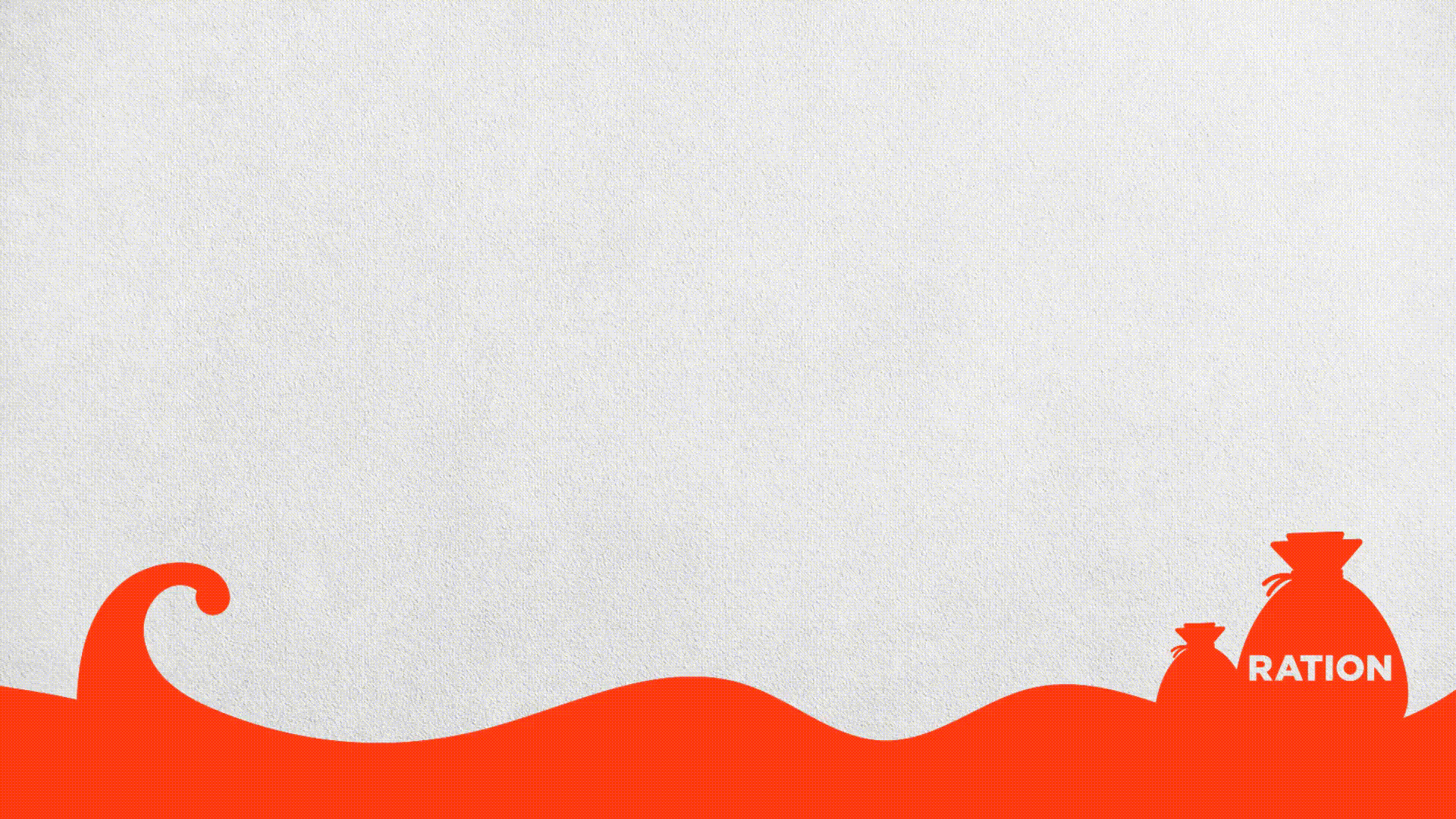
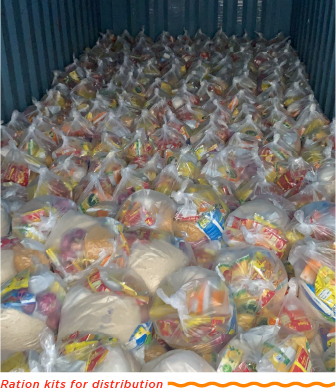
While sustenance to get through the lockdown was the primary need, close on its heels was financial aid, both for unavoidable expenses during the lockdown, as also for capital to restart their businesses afterwards.
Through a fundraising campaign we managed to raise `10 lakhs. This was topped off with a CSR grant of `15 lakhs enabling us to give grants of `5000 each to our vyapaaris. For most of our vyapaaris this was the only source of income during the lockdown.
None of the assistance that we were able to offer to our vyapaaris and the wider community would have been possible without NGOs, volunteers, companies and others pulling together to help in any way possible. Together we were able to ride out this wave and see our vyapaaris through to the other side.
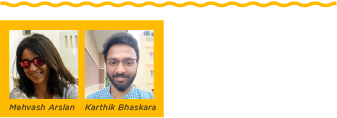

By June 2020 most businesses had figured out how to return to normalcy through online channels. Our vyapaaris however, were unable to leverage the business opportunities created by technology. Faced with the challenge of equipping vyapaaris with digital platforms as the first step, we started a series of experiments to arrive at new models for our learning initiatives.
It was also imperative that we start onboarding them on to other digital platforms that could allow them to conduct their business online. From assessing specific cohort needs and identifying the right platforms, to training them remotely and enabling their transition to online business, we iterated and arrived at what worked.
- Firstly, many vyapaaris only had one mobile phone in the family and this was often used by their children for online classes
- Secondly, scheduled classes during the day overlapped with business hours
We realized that our training had to be re-invented The solution was to build a self-learning model which allowed for learning at one’s own pace and convenience. We distilled the existing curriculum into short fun videos on WhatsApp, a platform they were all comfortable with, and tested it for feedback.
Learning & iterating for us meant that feedback was essential. While earlier this was done through field visits, we built new processes that involved data and insight gathering via phone conversations and online surveys. This also meant our Saathis needed to adapt and familiarise themselves with these new processes, at the same time ensuring that the rigor and quality was maintained.
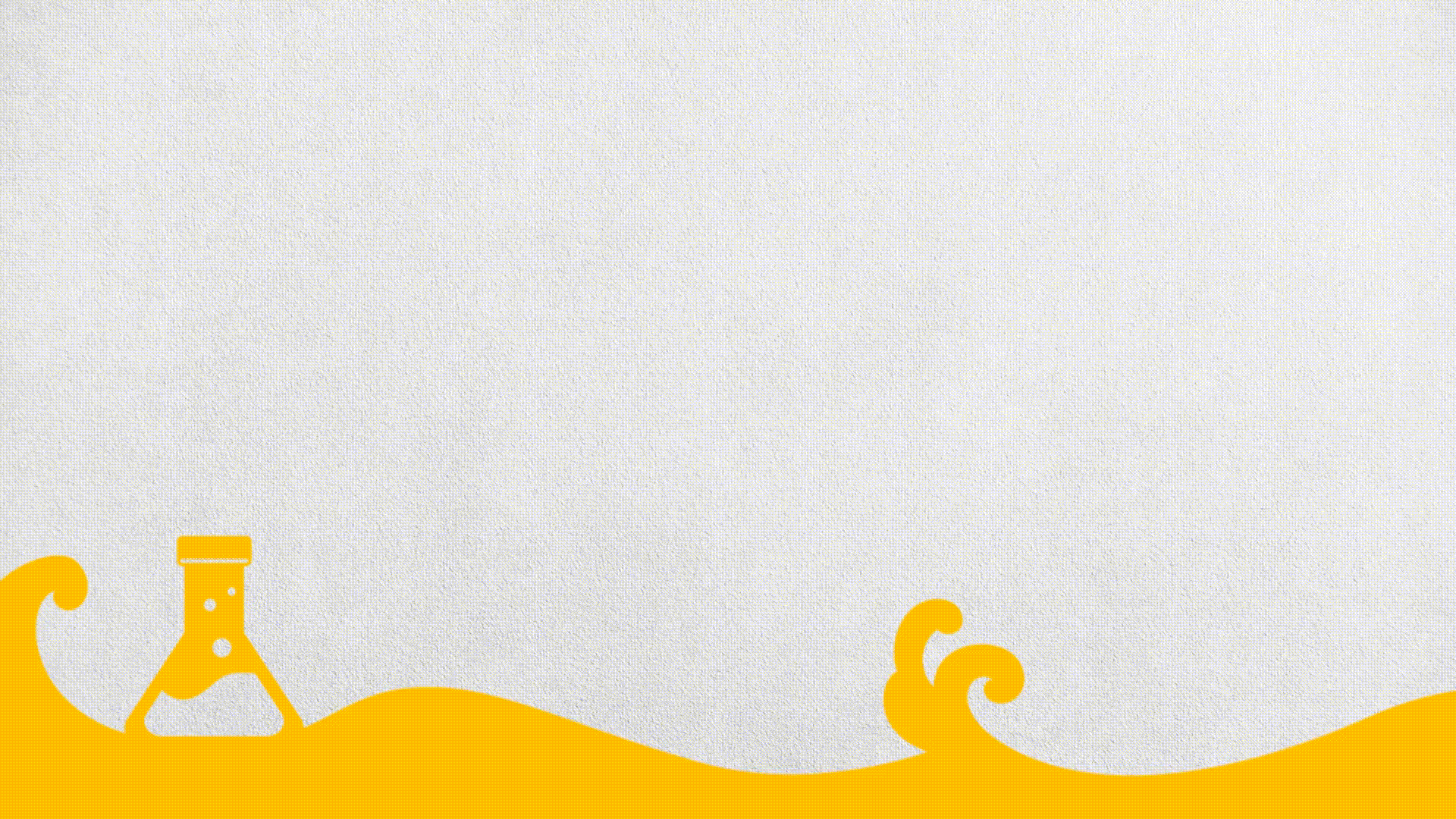



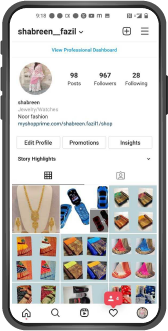


SEWA Bharat and Samagra Governance working with Haryana SDIT department both identified this as a need for their audiences and respectively worked with us to create a training program that would help increase the income of these entrepreneurs. The program was rooted in entrepreneurial mindsets and focused on enabling them to take their businesses online. The groups we worked with were diverse - SEWA had a participant group of artisans, producers, traders, resellers, etc., across Rajasthan and West Bengal; and the Samagra participant group had graduates of ITIs across Haryana with businesses ranging from carpentry and electrical work, to tailoring and beauty parlours.
For the pilot batch of 32 entrepreneurs from Haryana ITIs who went through the program, an impact assessment conducted by Samagra Governance and verified by Haryana SDIT Department threw up positive results.

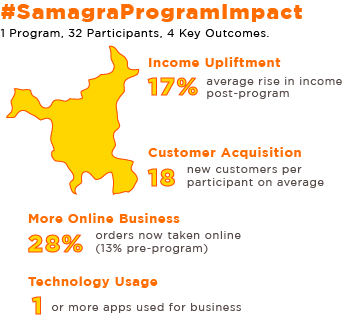
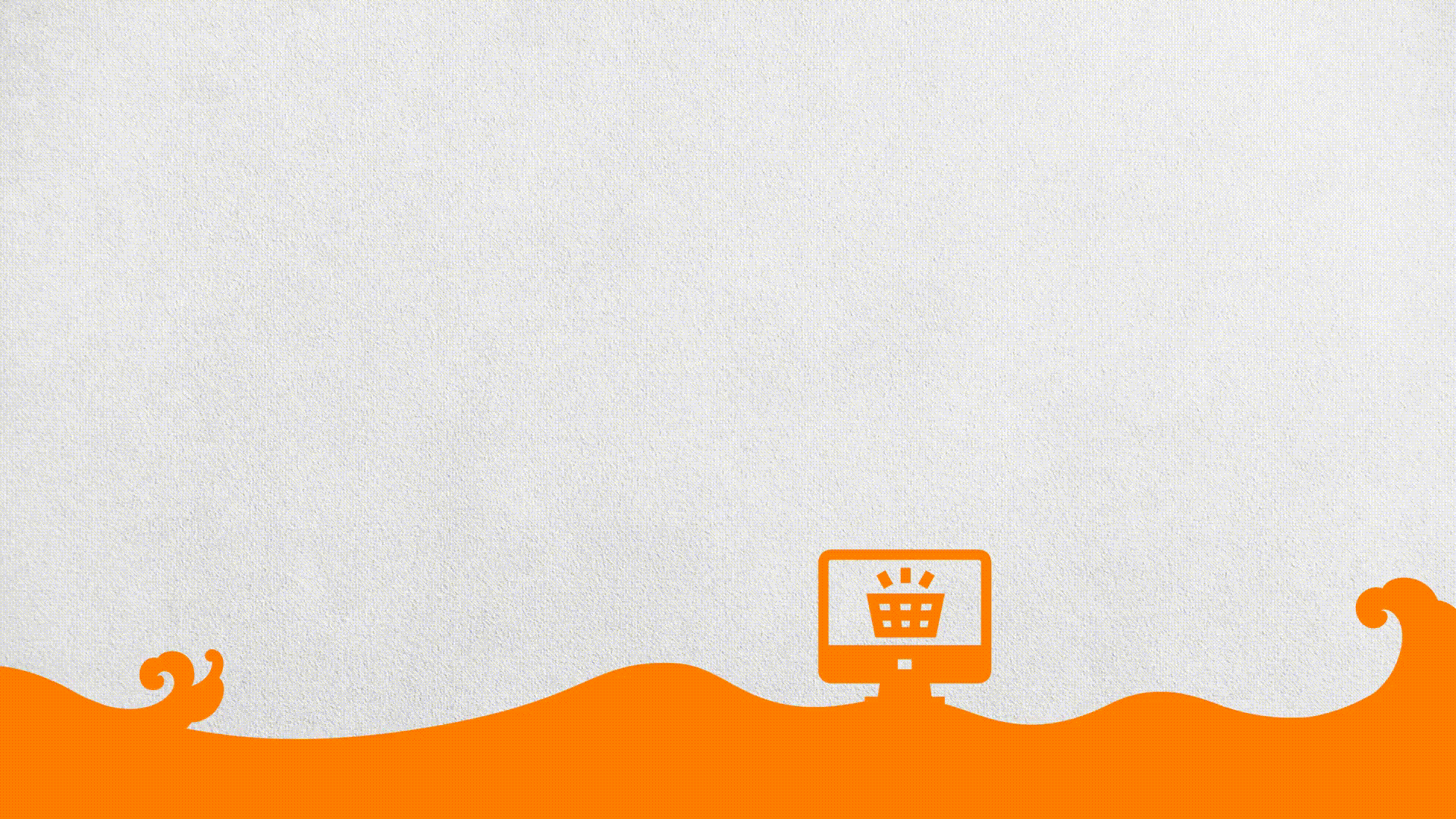
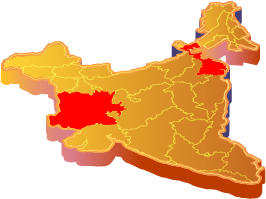
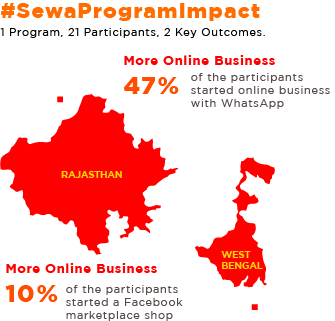
Based on the impact delivered by these programs we are currently looking to work with more partner organisations and scale the impact we have been able to create.


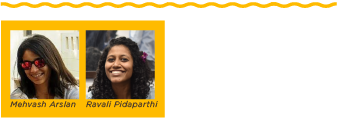

This resulted in the inception of Project Udhyami. The objective here was to help 500 vyapaaris rebuild their businesses by providing them access to interest free credit. This was coupled with relevant training and enabling them to create & follow a business plan, so as to ensure the business credit was utilised in a planned and productive manner.
Financial institutions were unwilling to lend to this audience owing to the perceived risk, which was when we changed tack and approached CSR teams who were interested in supporting livelihood initiatives. The lending capital for Udhyami we raised from Titan CSR, while JPMC provided funds for the operational expenses.
After testing the process iteratively with the first 100+ entrepreneurs, we were able to streamline the process that included an easy online application form, telephonic data collection and business plan consultation, digit
All the vyapaaris who were part of the Udhyami cohort were added to WhatsApp groups so as to create a community and provide a space for vyapaaris to interact with each other. The group also acted as a reminder for vyapaaris to make daily repayments as they were encouraged to share payment updates there. As a part of the project, regular follow-ups were also done to ensure that vyapaaris were implementing their business plan and also to help address any roadblocks they faced.
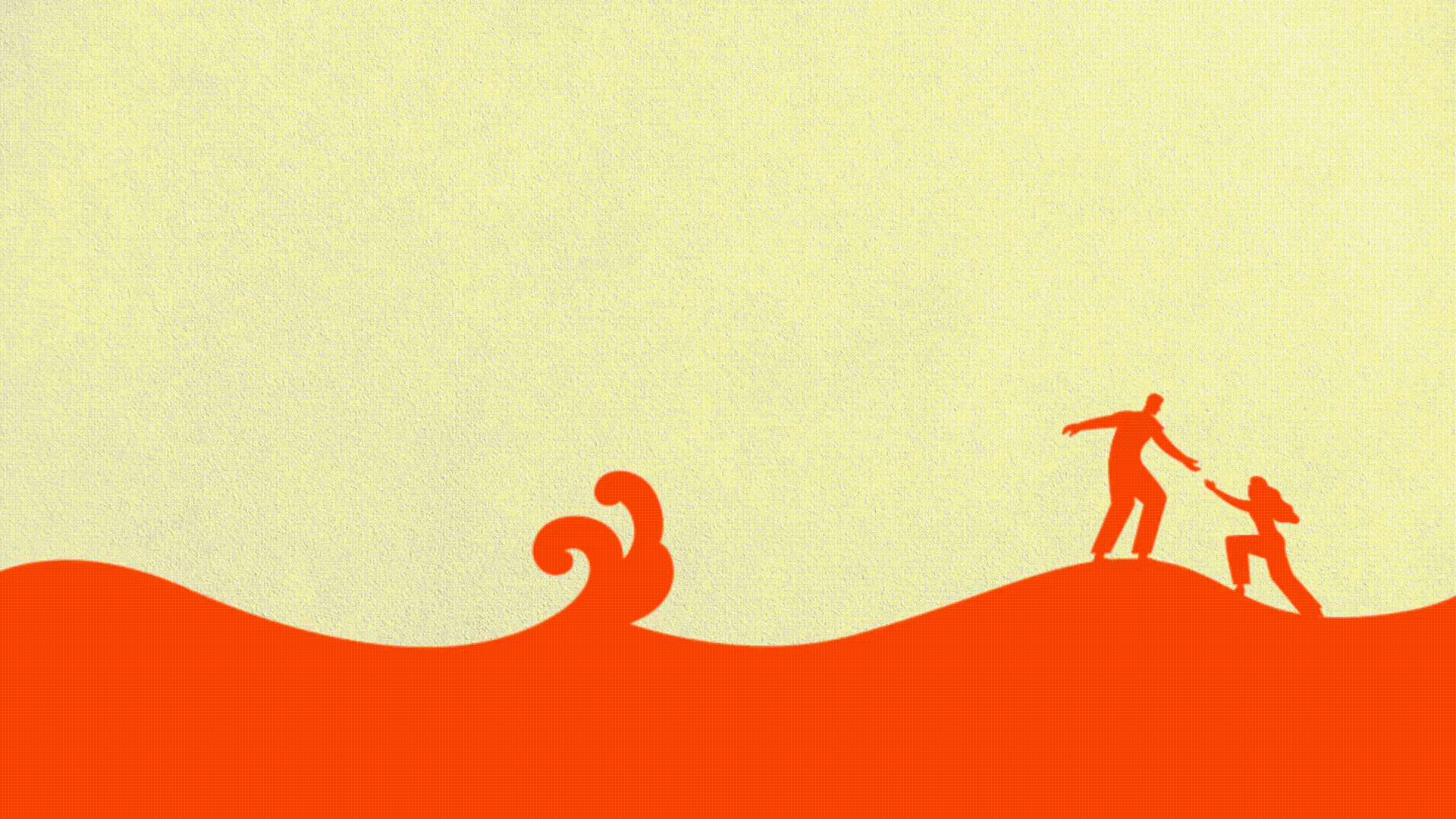
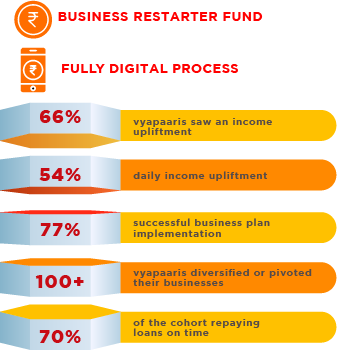
While we had even gone on to further link those vyapaaris who had successfully repaid their loans to formal lenders like Gromor for future access to credit,
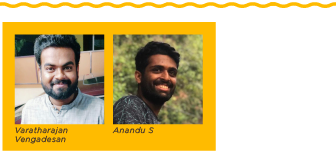
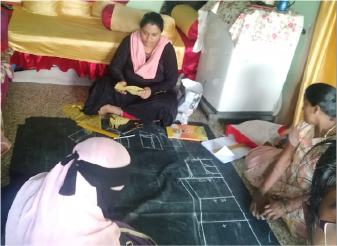

The impact seen was significant-
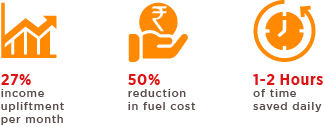
The intervention was poised to scale across Bengaluru and other locations, building on the work done over the last year and with partnerships being set up with various stakeholders. All these developments had to be put on pause as the pandemic impacted our ability to operate on ground and the ironing business was brought to a grinding halt.
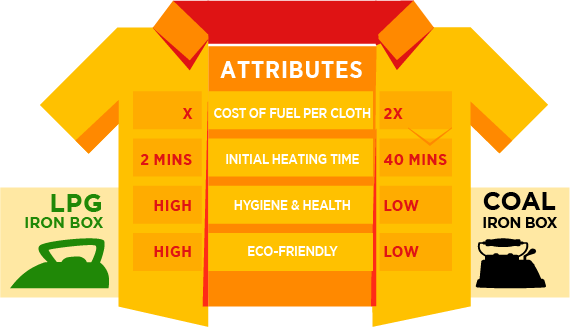
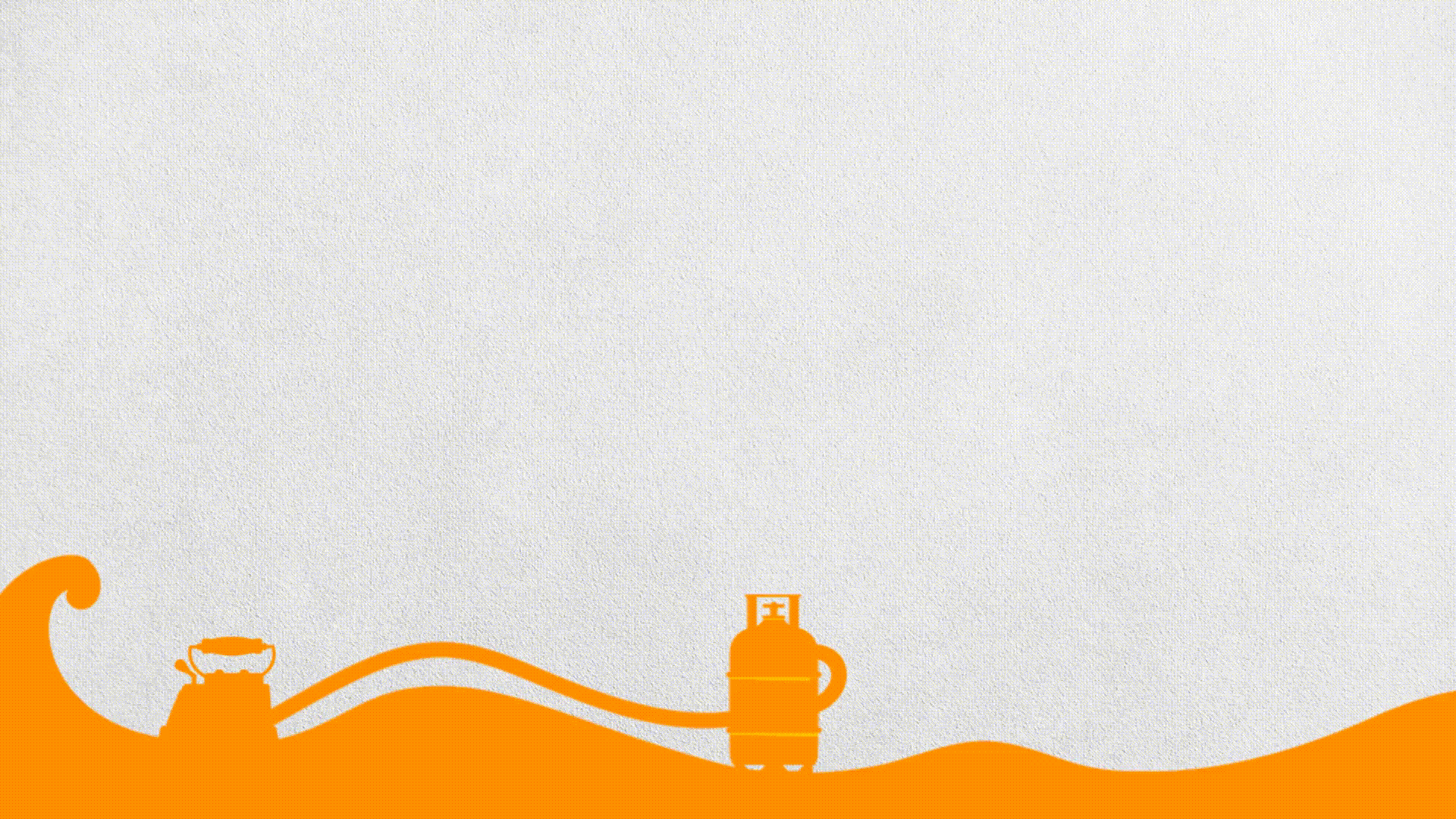
Most of these vyapaaris went back to ironing once the restrictions were relaxed and we supported them with hygiene training and with curated messaging in the form of WhatsApp images and posters, to announce to their customers that their business was reopening. An interesting observation was that many ironing vyapaaris shifted to the LPG iron box during and after the lockdown as the coal supply chain was disrupted during the lockdowns.
The ironing business eventually picked up steam and we focused on reworking our strategies to design a scale plan for the market transformation from coal to LPG based ironing. We started out with an ecos
Based on the results from this comprehensive study we were able to arrive at 3 key problems to be solved, to facilitate this conversion from coal to LPG as the input fuel.
Financial Accessibility - While vyapaaris are accustomed to buying a new iron box every 2 - 3 years owing to wear and tear, an out of turn conversion needed to be made financially viable for them. Given the LPG iron box is currently priced at around `6,500/-, we are currently exploring multiple options, from asset financing, to customer funding, to an exchange pricing option as a means of making this conversion feasible.
Product Availability - While currently there are a handful of individuals distributing this product, to be able to effect a market transformation it is essential that the LPG iron be available widely and freely. To this end we are working to onboard multiple distributors and retailers, and also working towards getting the existing coal iron retail chain to also carry the LPG iron alongside.
Our three pronged effort as above is targeted towards ultimately arriving at a replicable model for this market transformation, that can then be taken to other markets as well.
While wave after wave of the pandemic has battered the livelihoods of our vyapaaris, enabling this conversion for them becomes all the more essential, towards improving their earnings and thereby allowing them some cushion to be prepared for further such eventualities.
